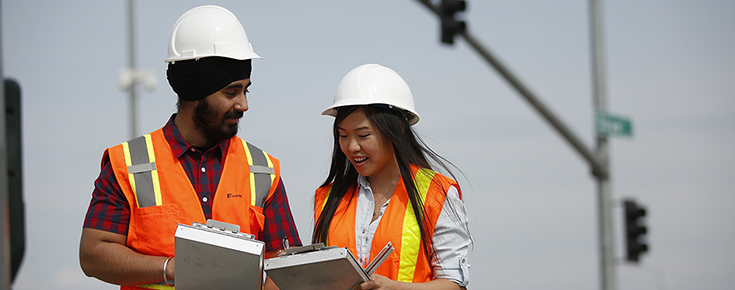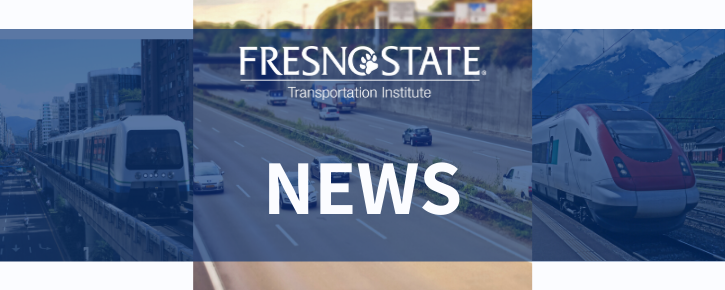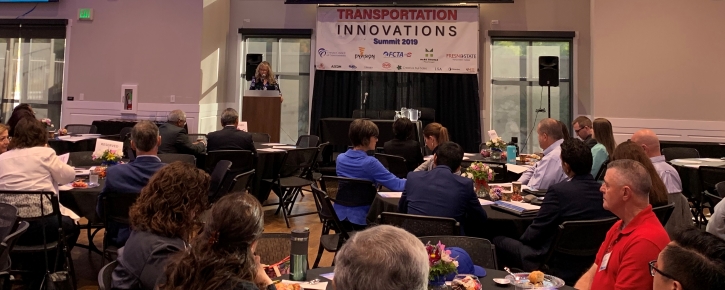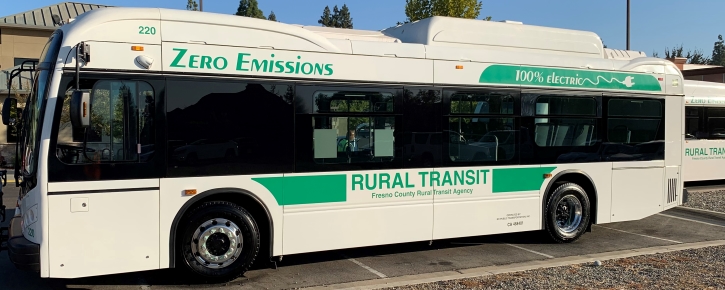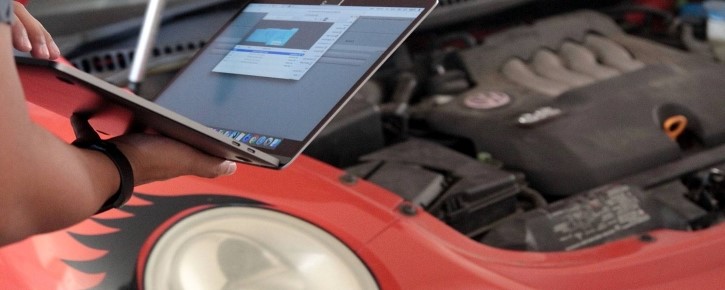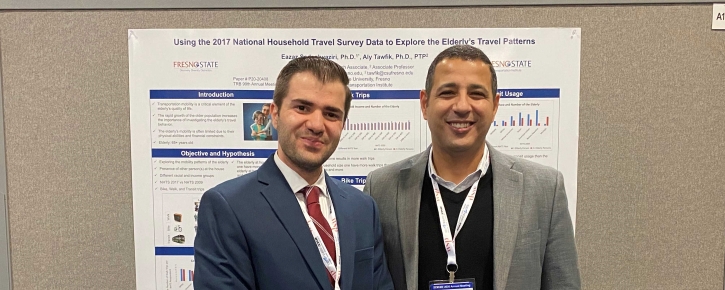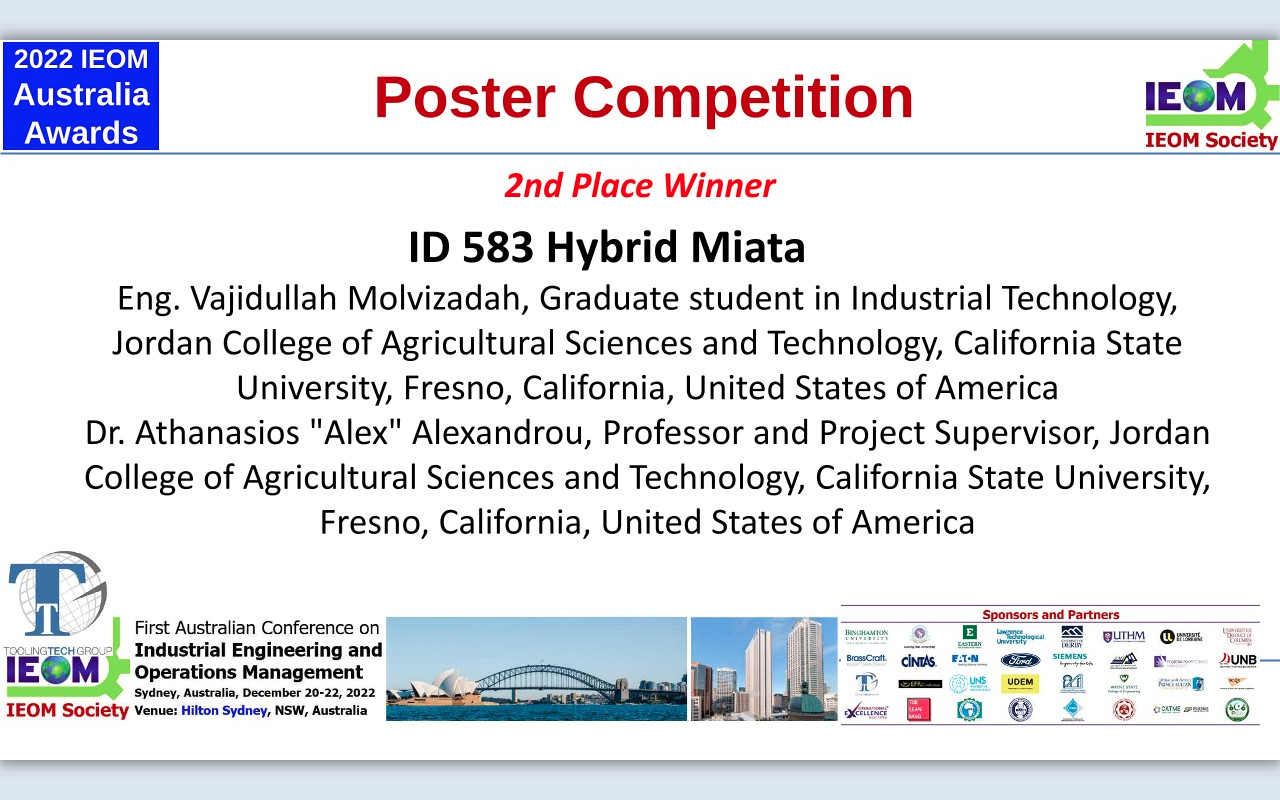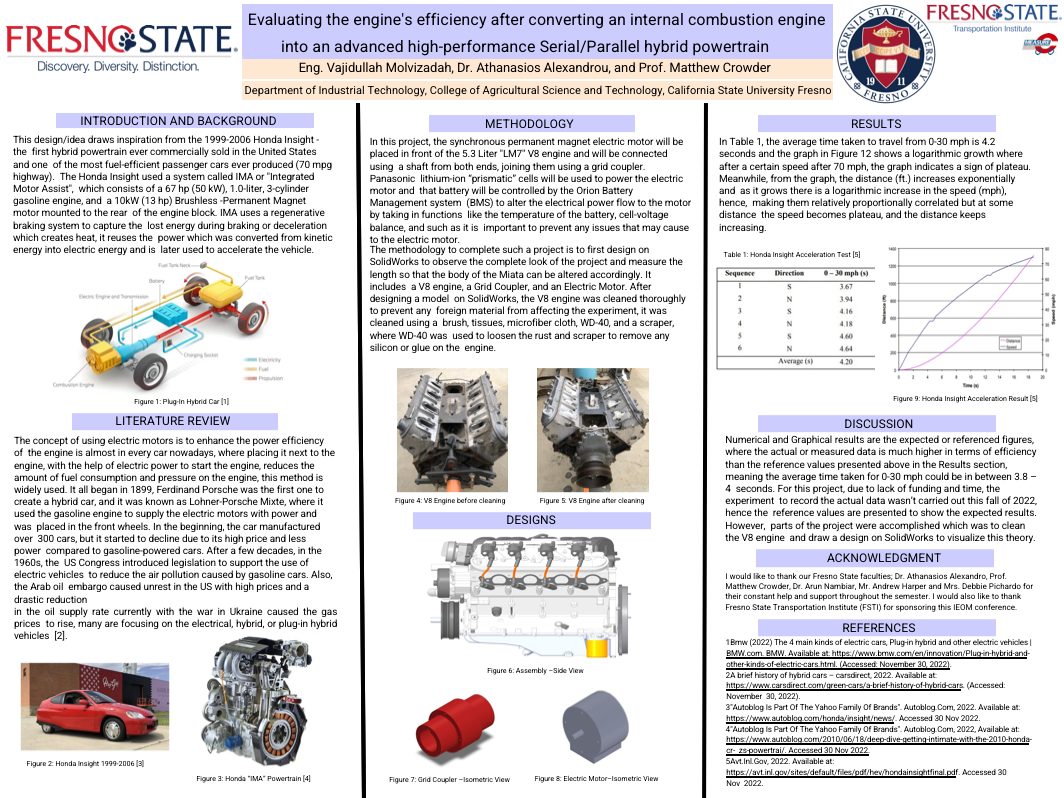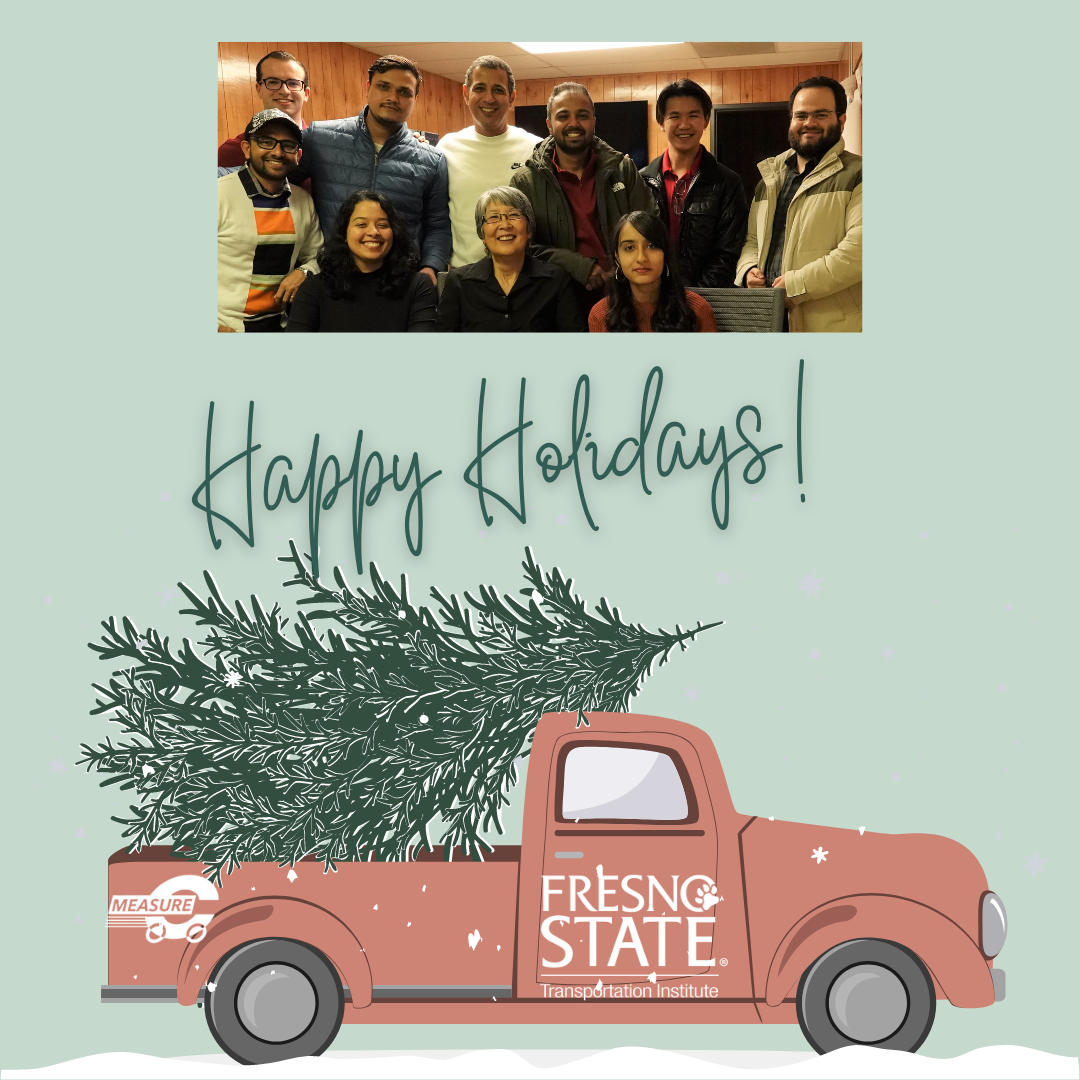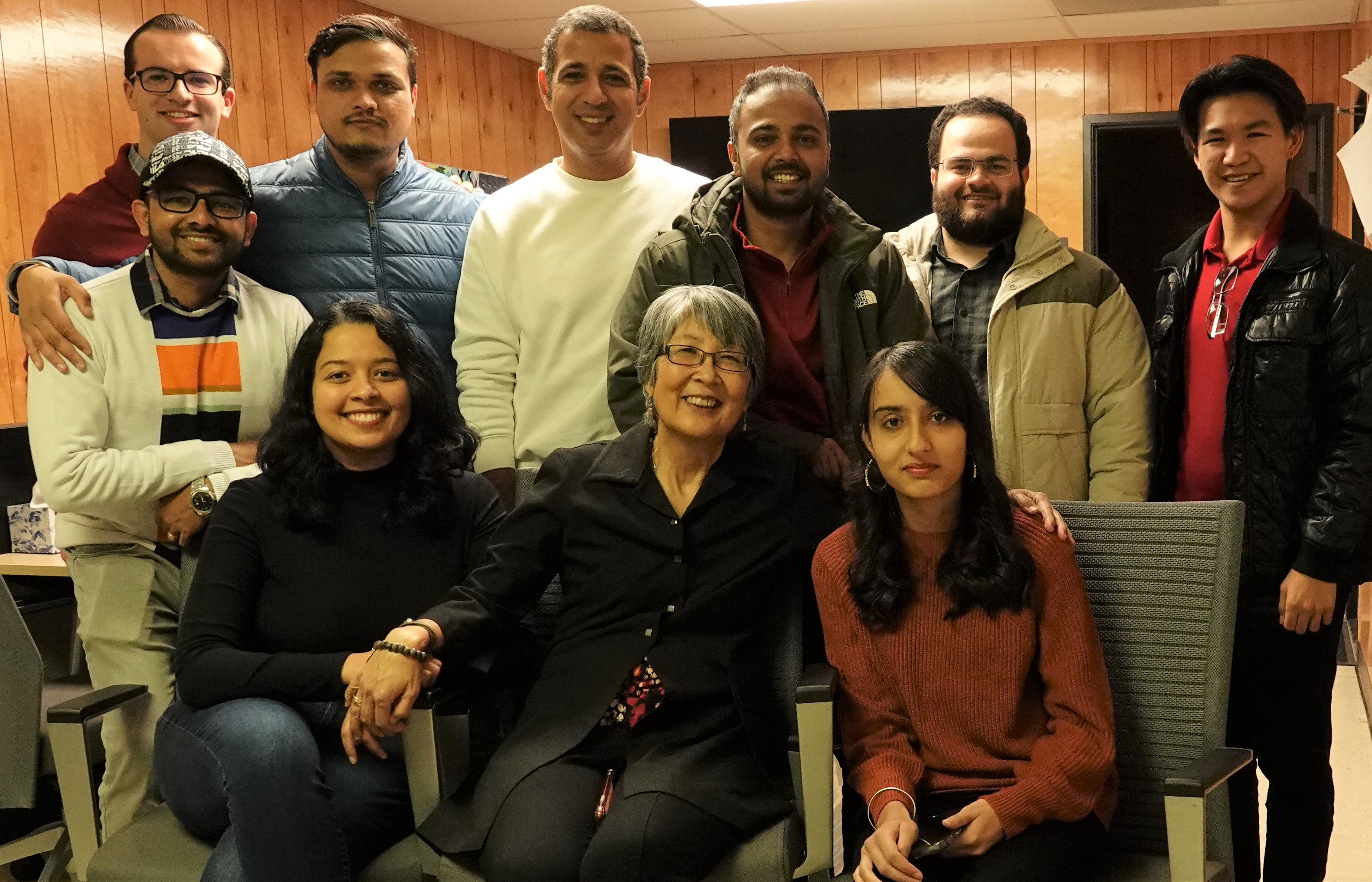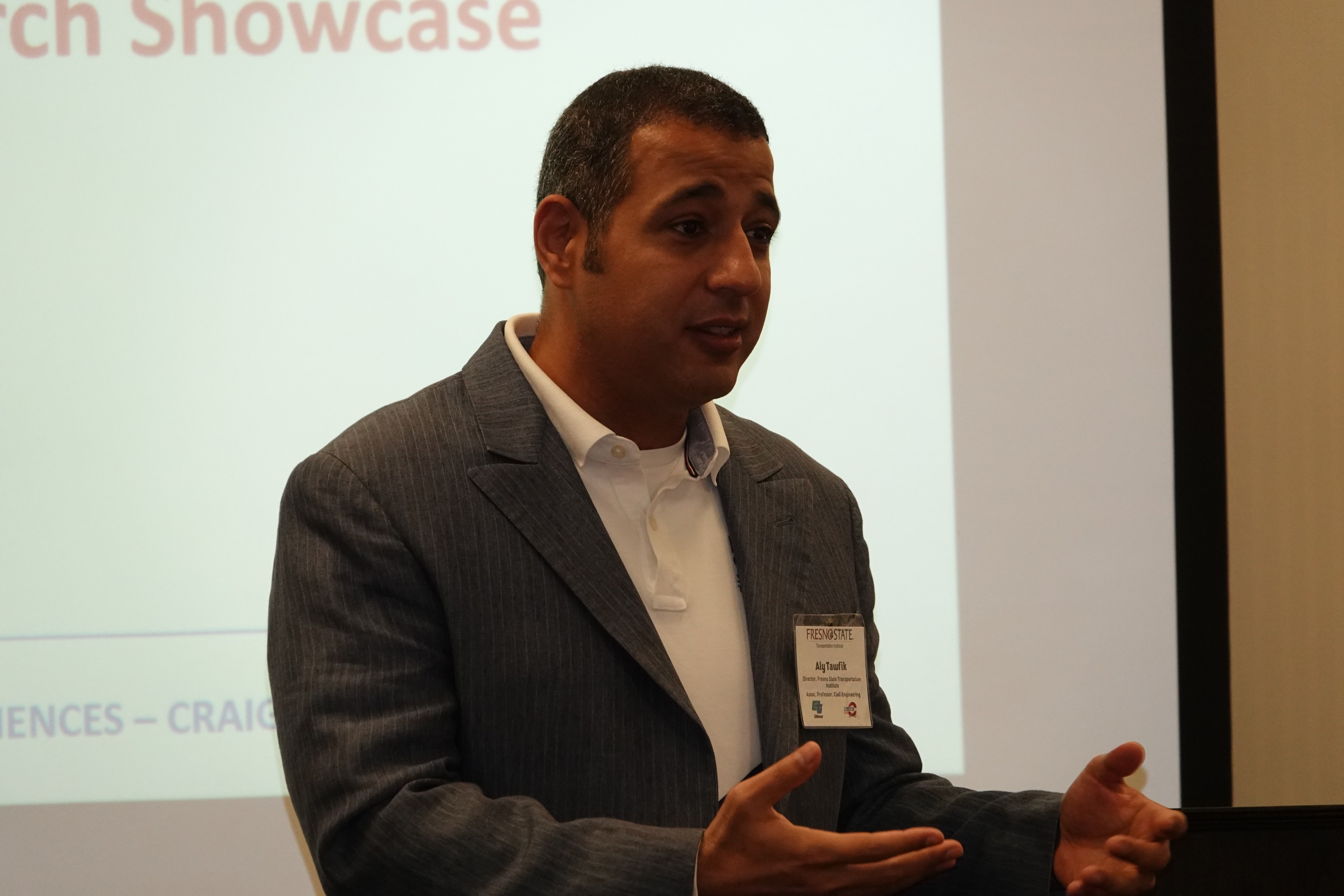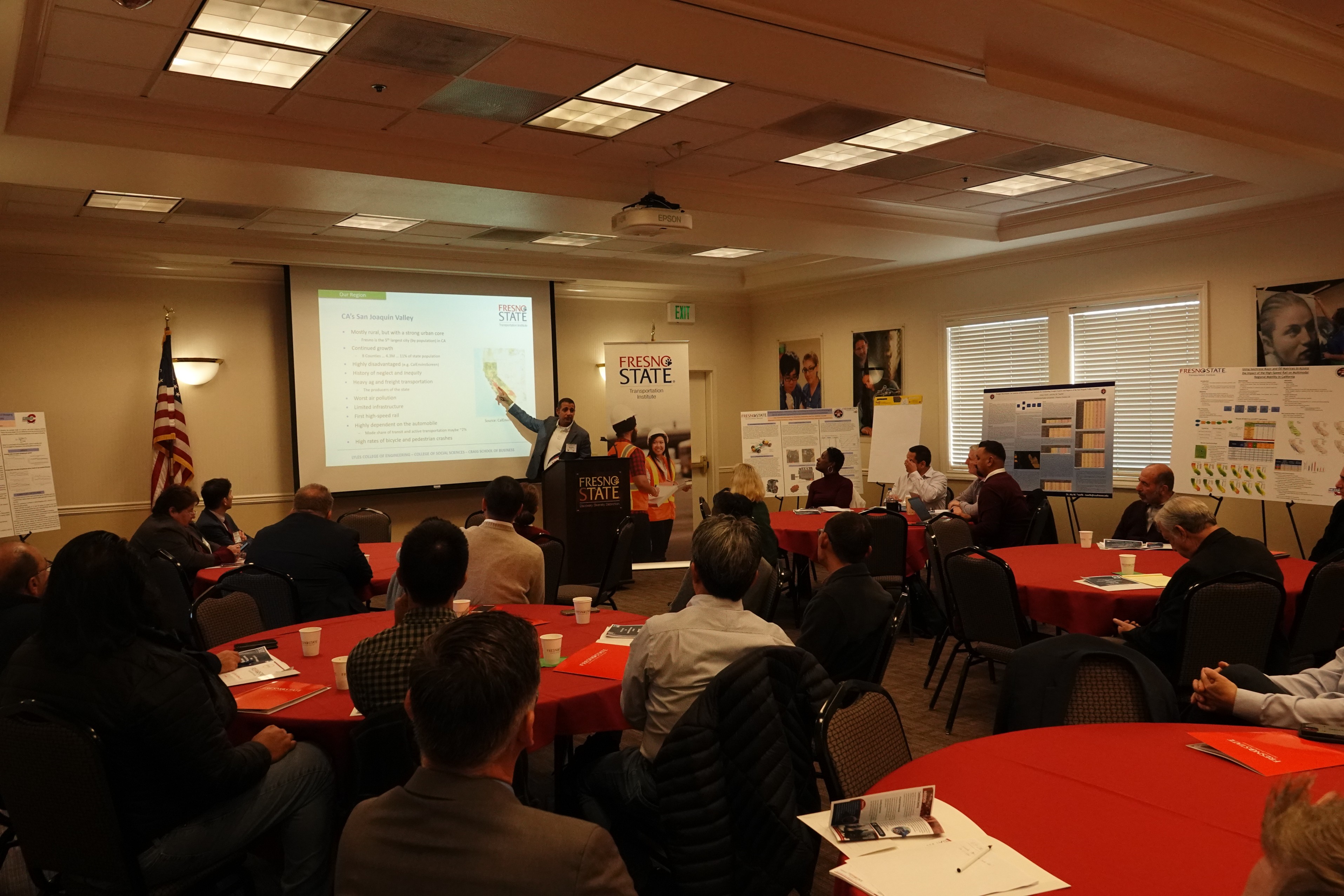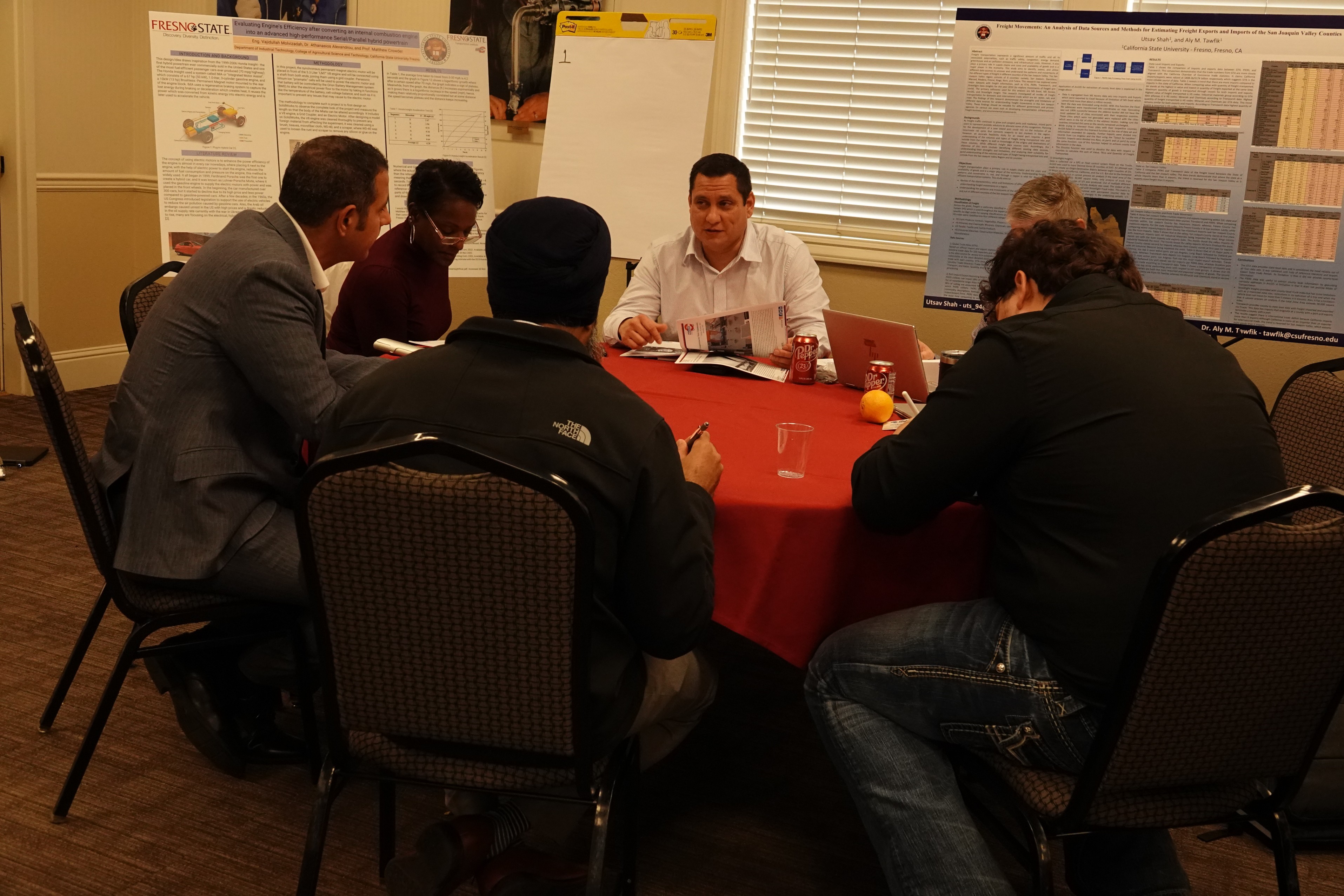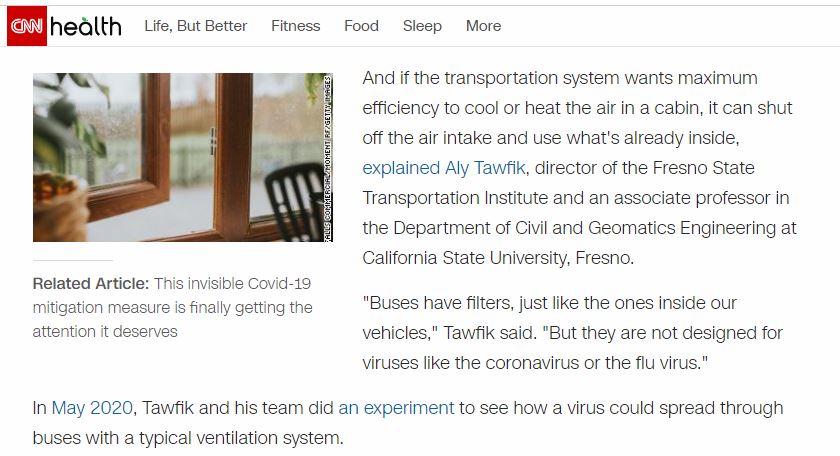Fresno State Transportation Institute
News
View years
2018 year 2019 year 2020 year 2021 year 2022 year 2023 year 2024 year
2025
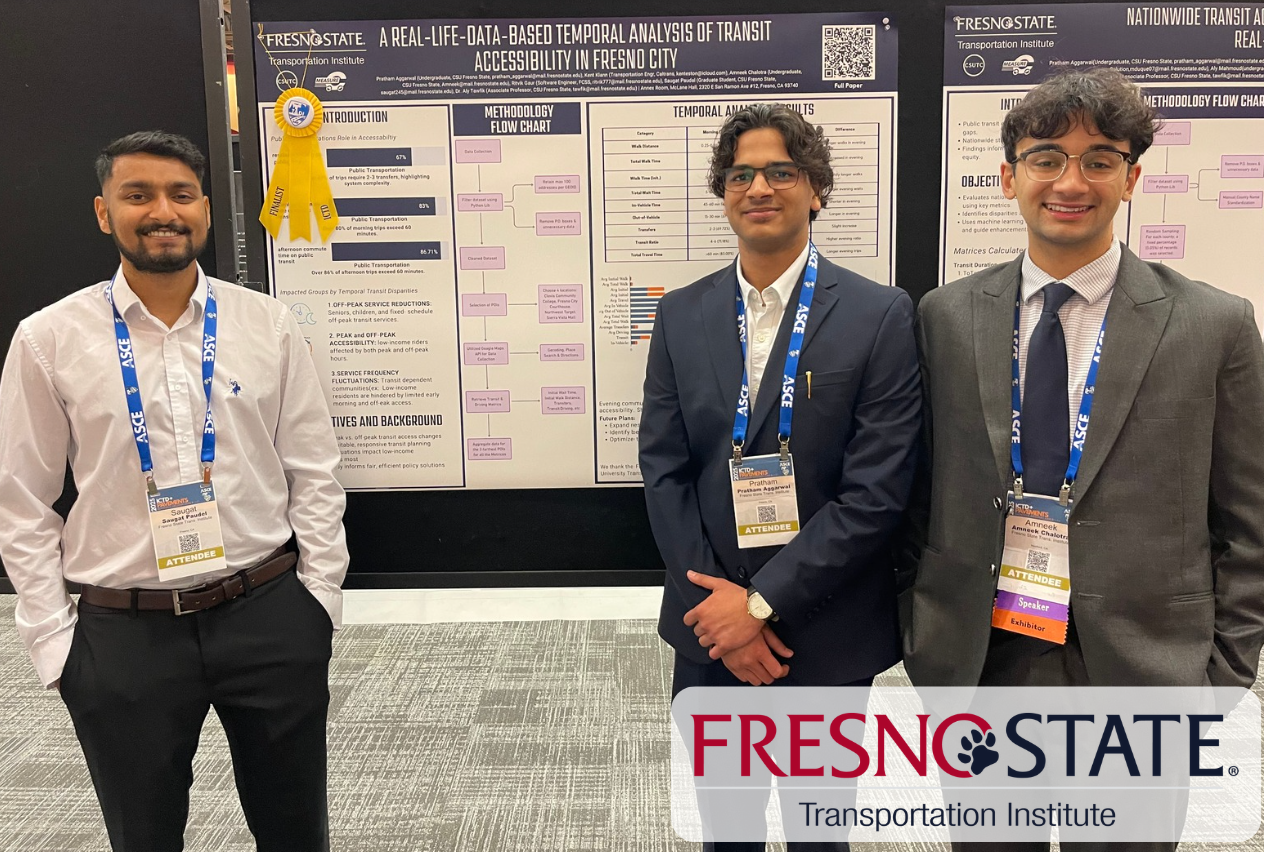
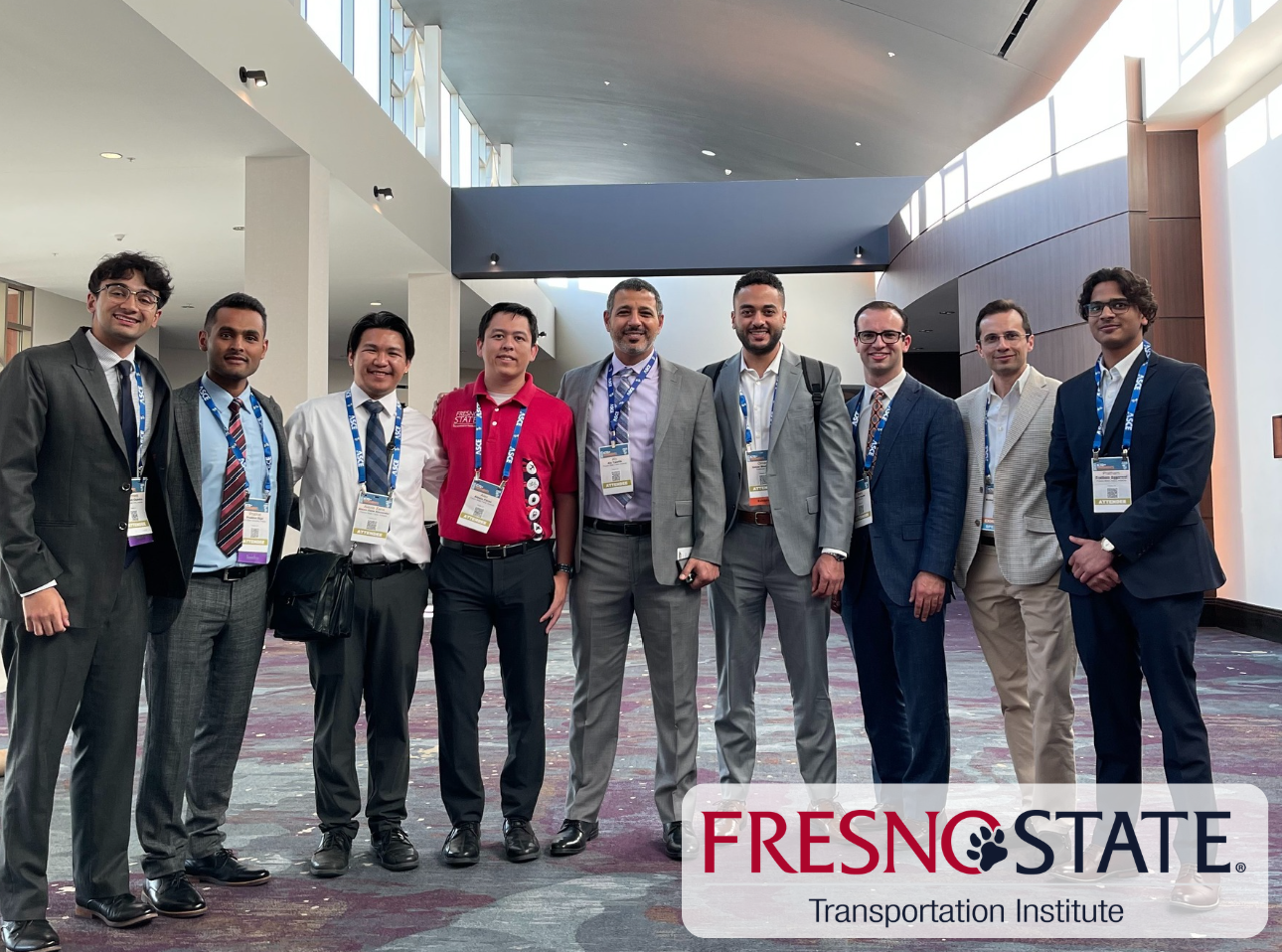
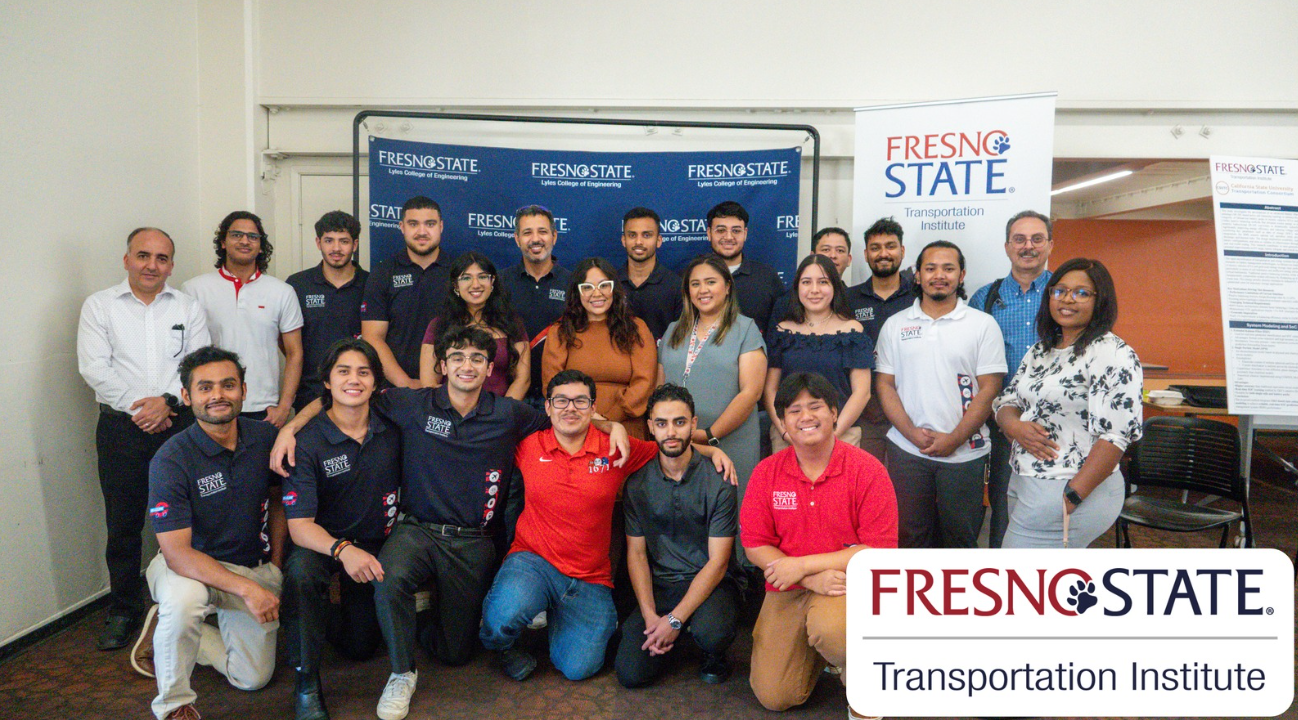
Alexis Zane Alexander: Bachelor's in Civil Engineering.
Anahi Labra: Bachelor's in Arts
Prem Raj Timilsena: Master's in Construction Management.
Amneek Chalotra: Bachelor's in Political Science
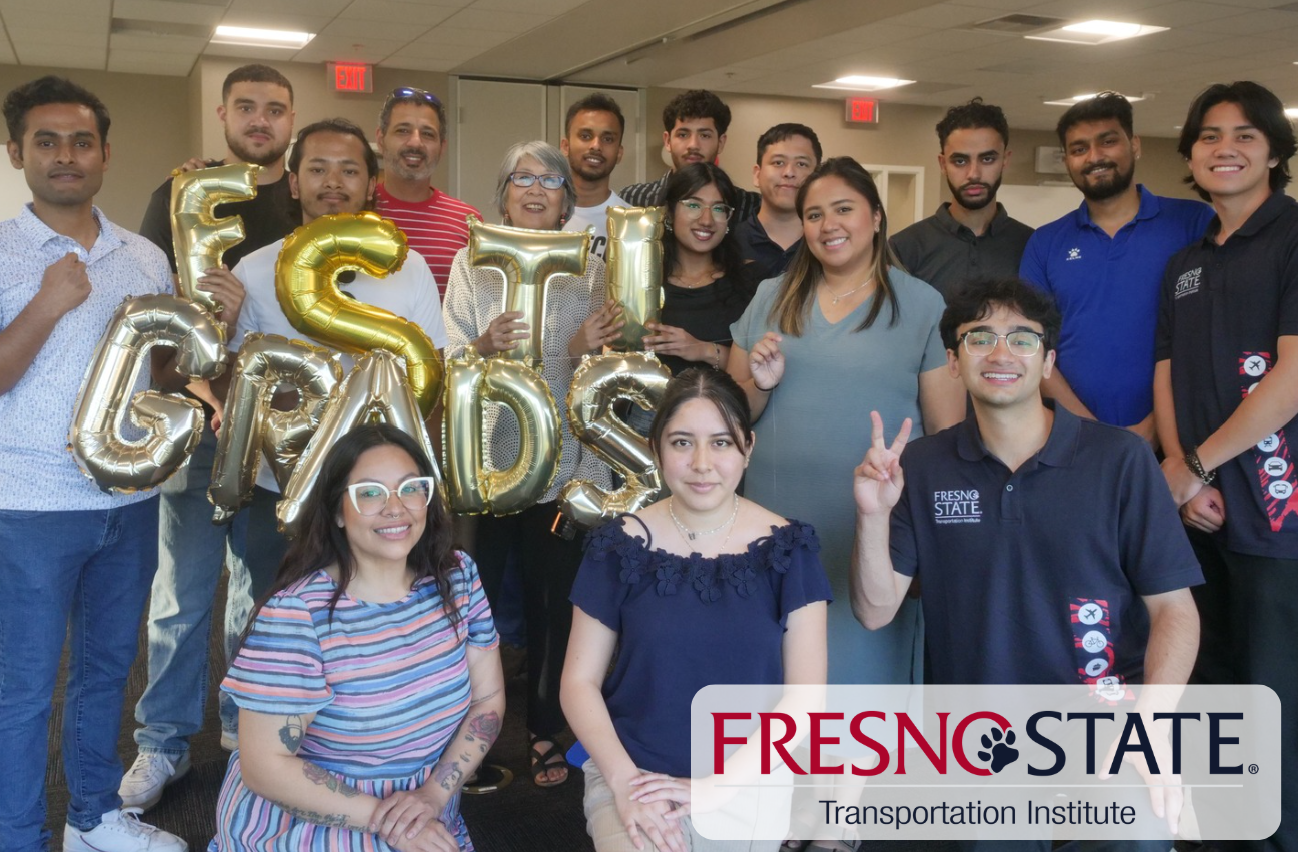
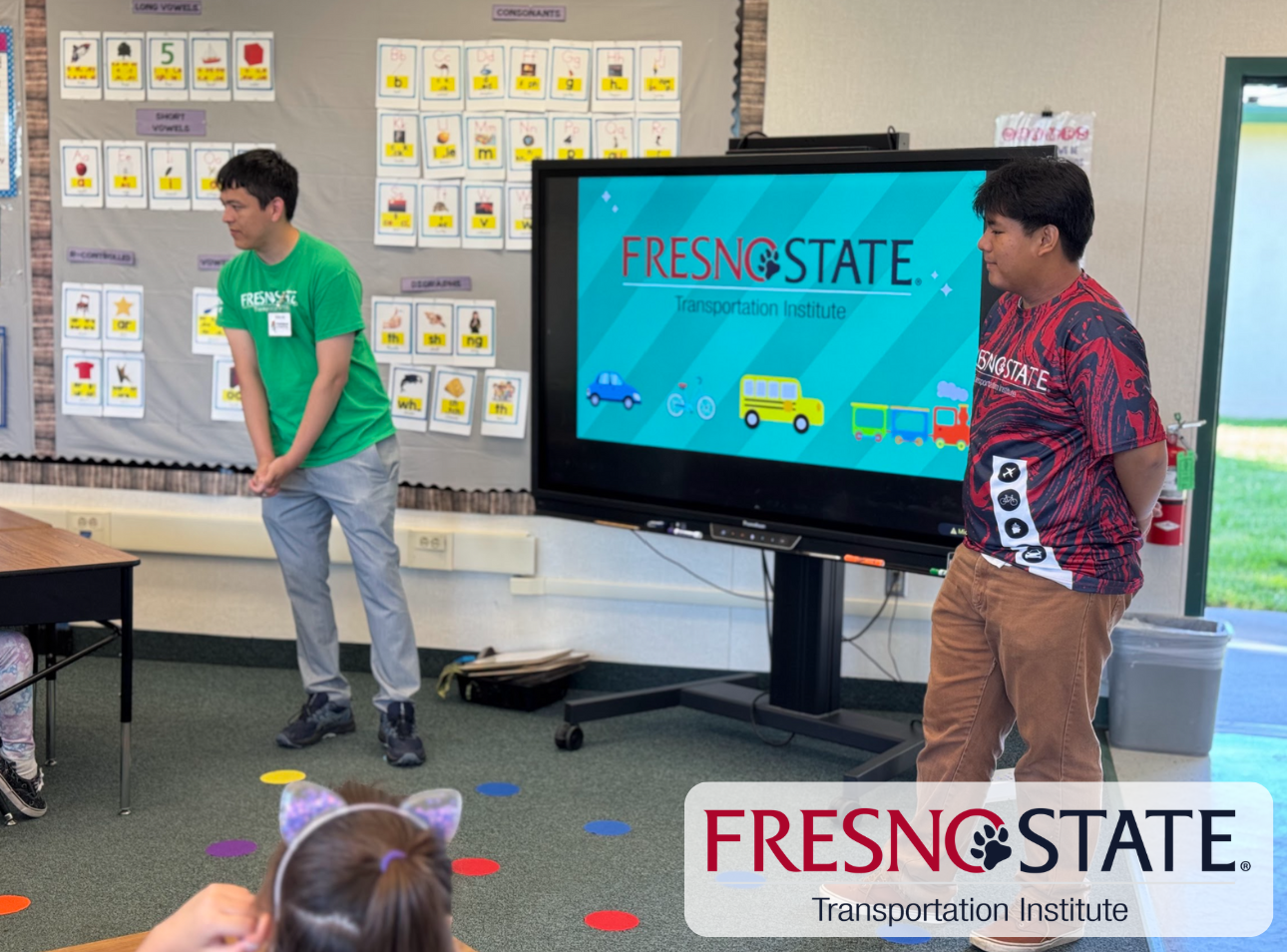
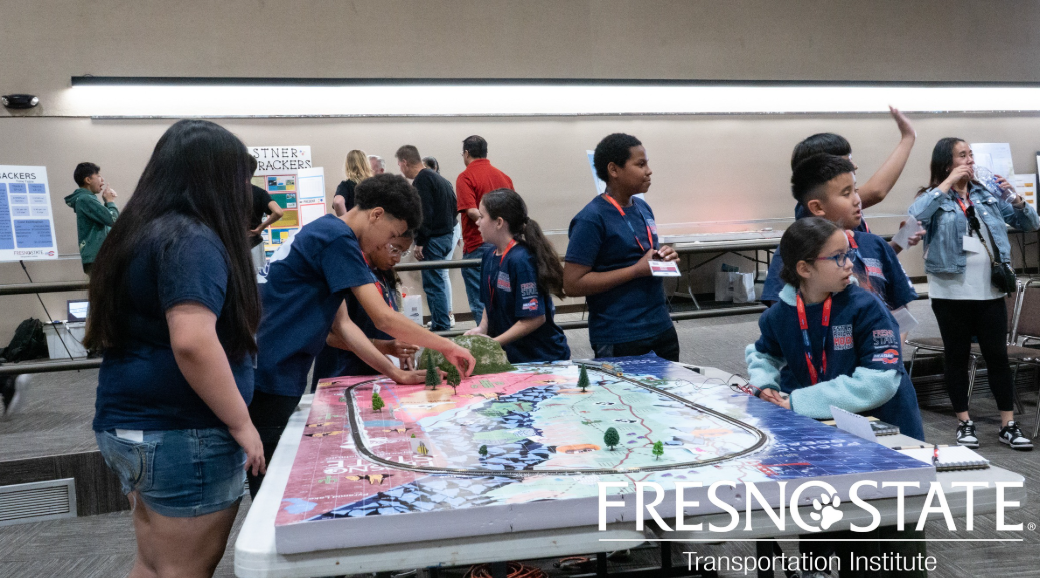
On March 7, 2025, the Fresno International Transportation Innovations Summit was hosted by the Fresno State Transportation Institute/ S.T.E.P. Summit 2025. The Fresno International Transportation Innovations / S.T.E.P. Summit 2025 is a international conference aimed at gathering leaders in the transportation energy sector and other transportation players, including policymakers, engineers, and other sustainable transportation proponents around the world. The objective of the 2025 S.T.E.P. Summit is to promote innovations in sustainable transportation design, planning, and policy with a focus on alternative fuels, such as hydrogen, biofuels, and electrification.
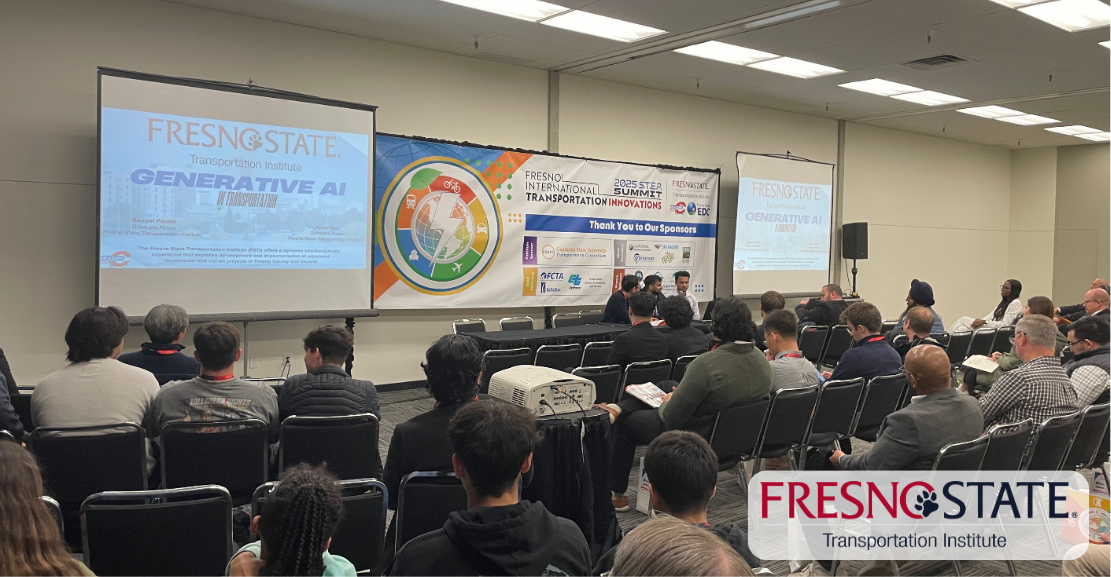
2024
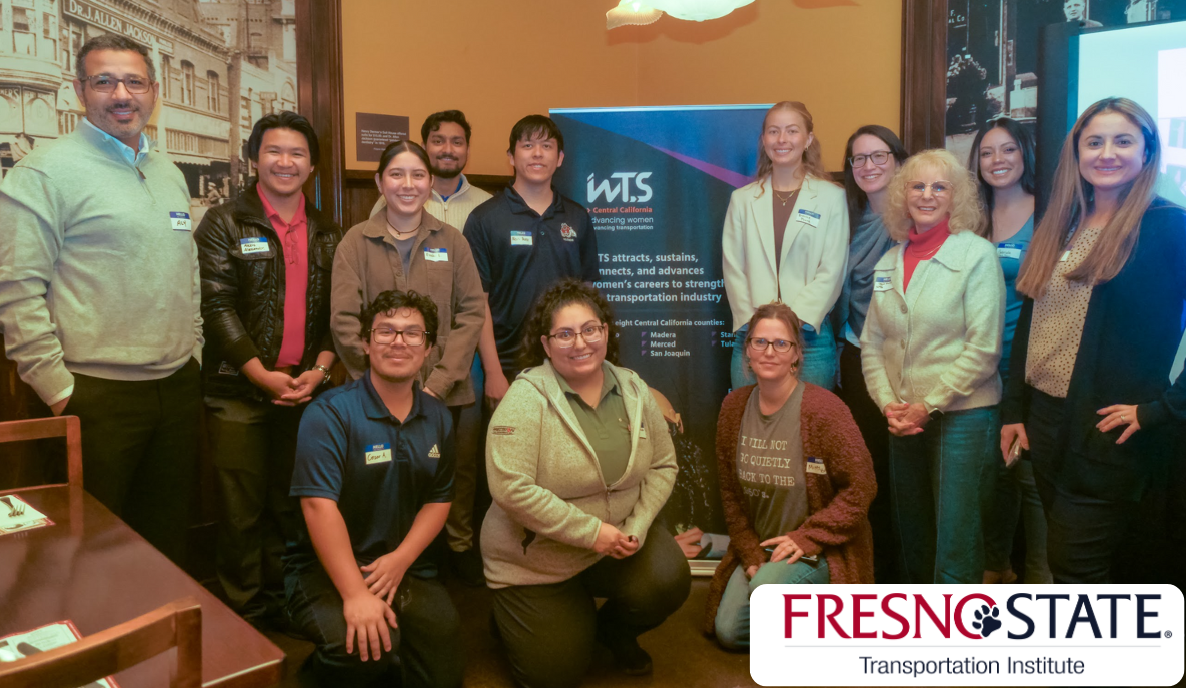
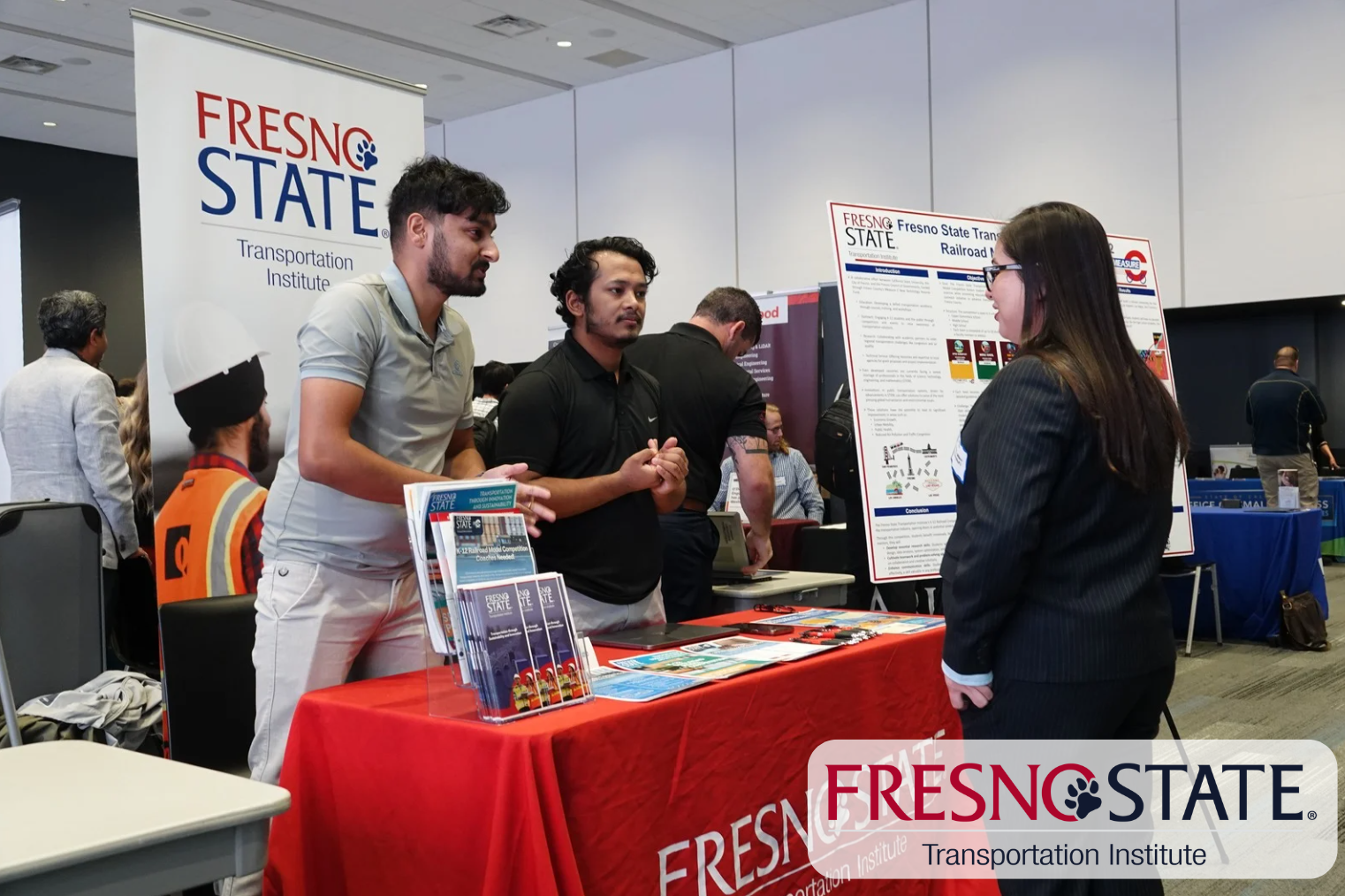
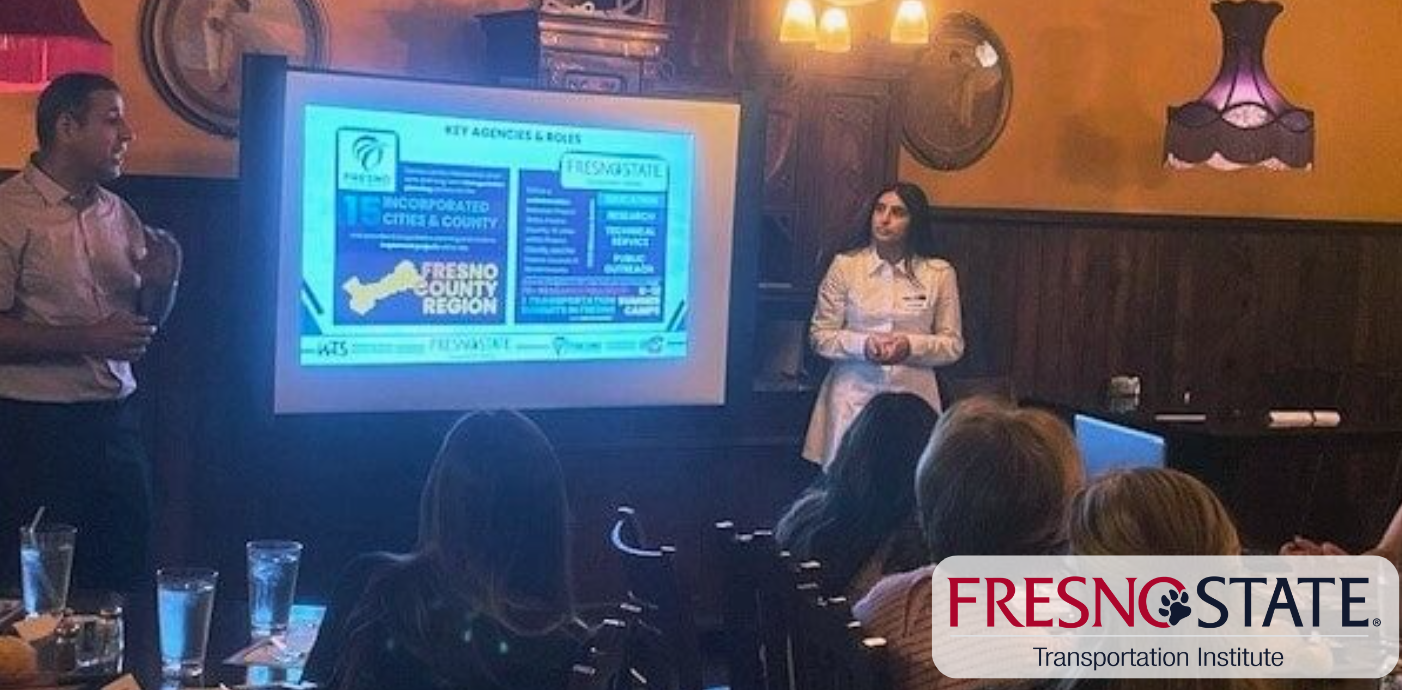
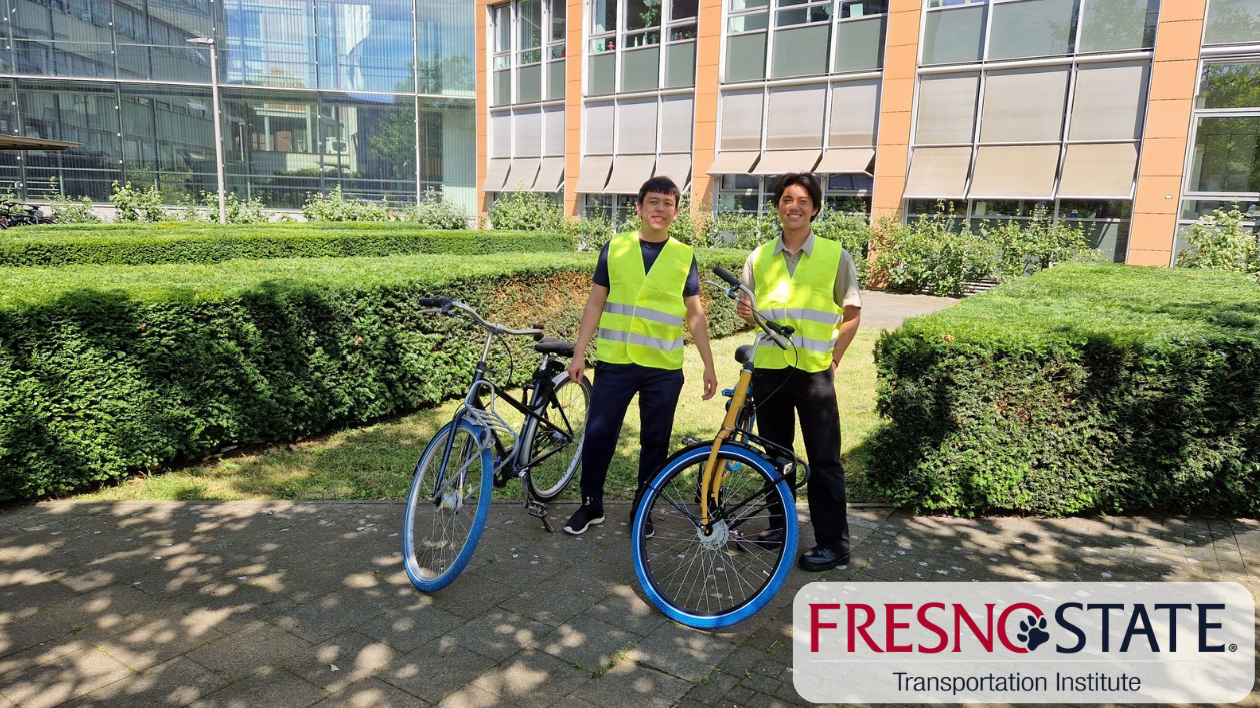
The Fresno State Transportation Institute’s Industry & Careers Camp provided middle school students with hands-on experience in 3D printing, model creation, and modern engineering tools. A field trip to the Port of Oakland offered insights into global goods transportation, green technologies, and career opportunities in logistics. During a coding workshop, students programmed robots, sharpening their problem-solving skills while exploring automation.
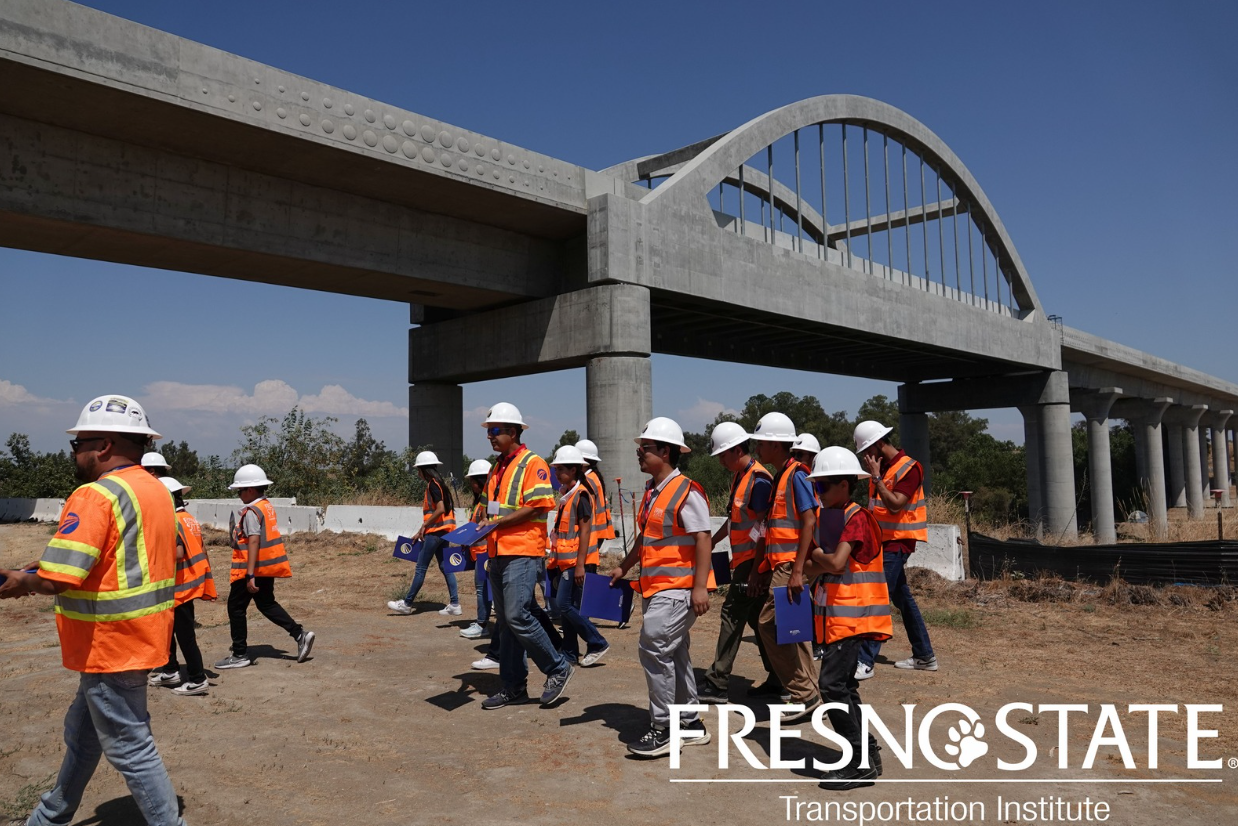
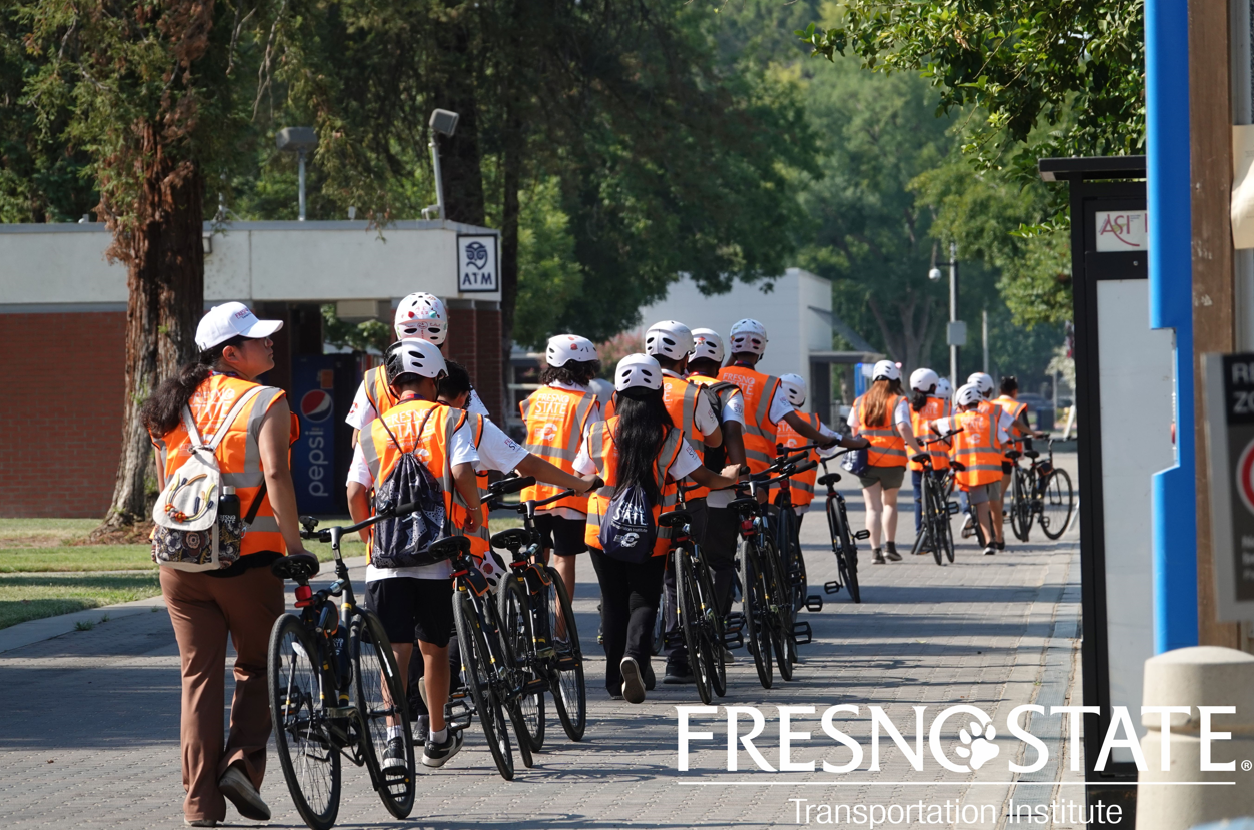
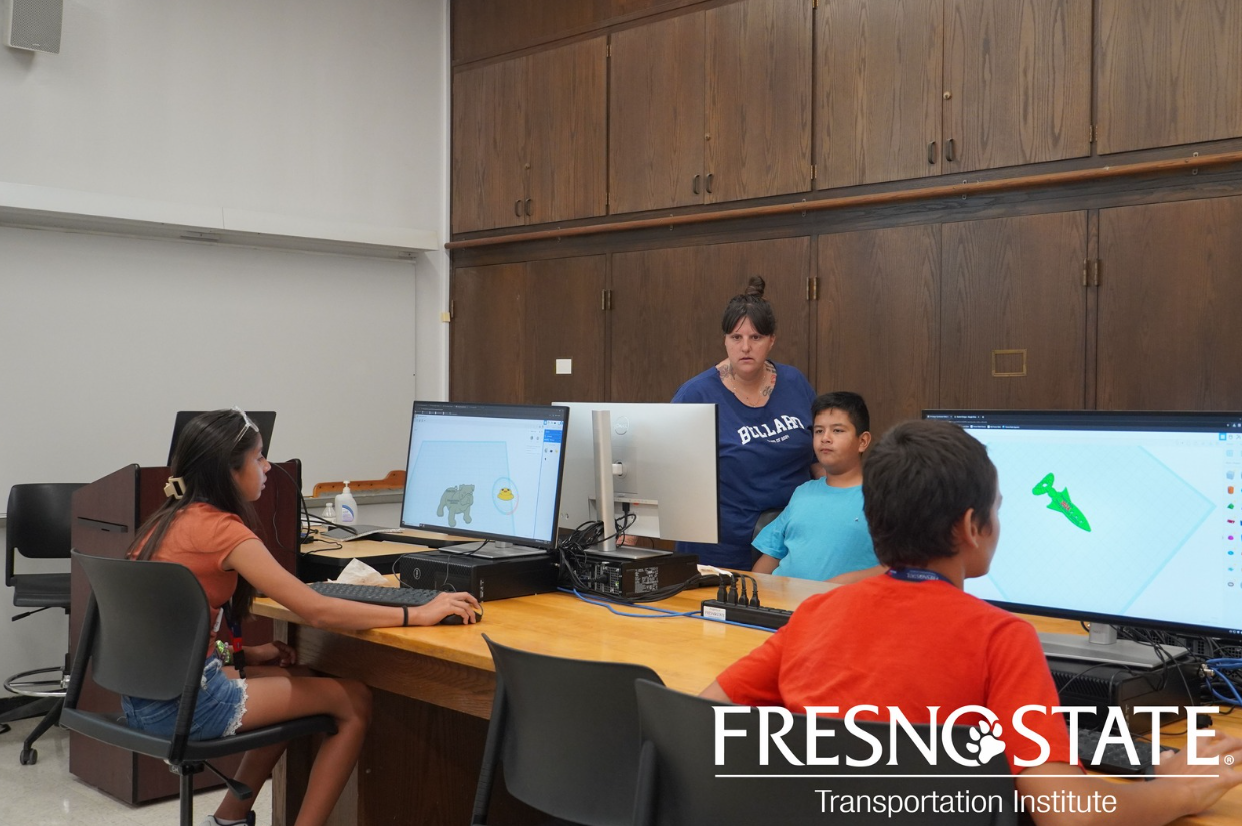
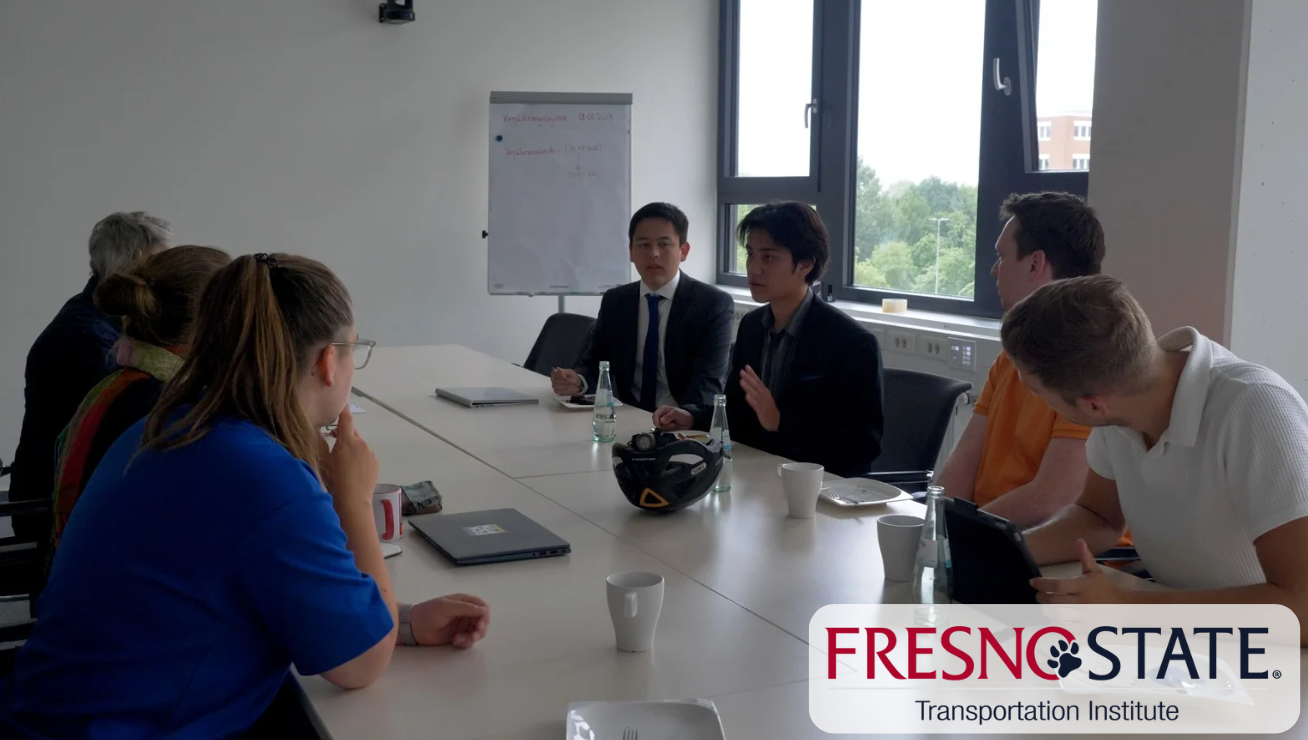
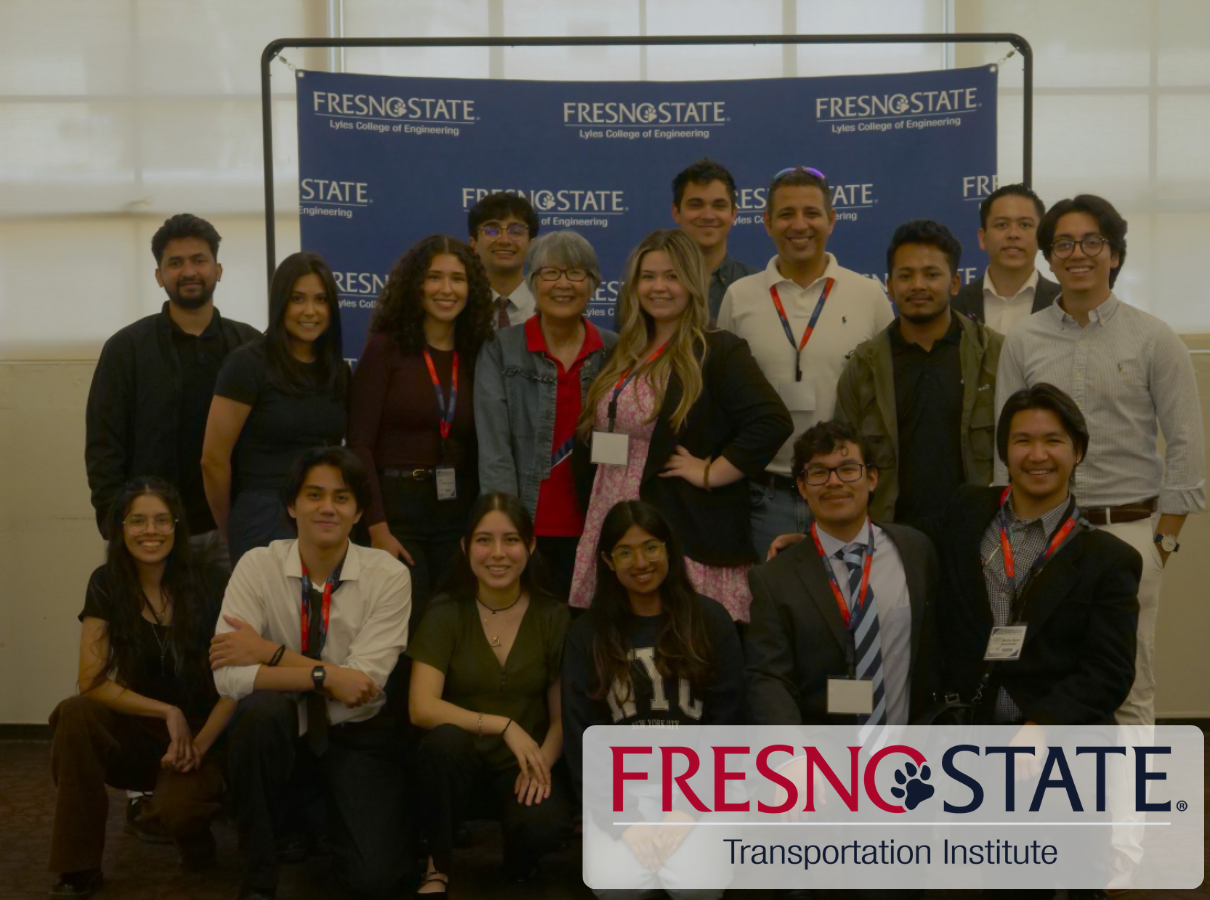
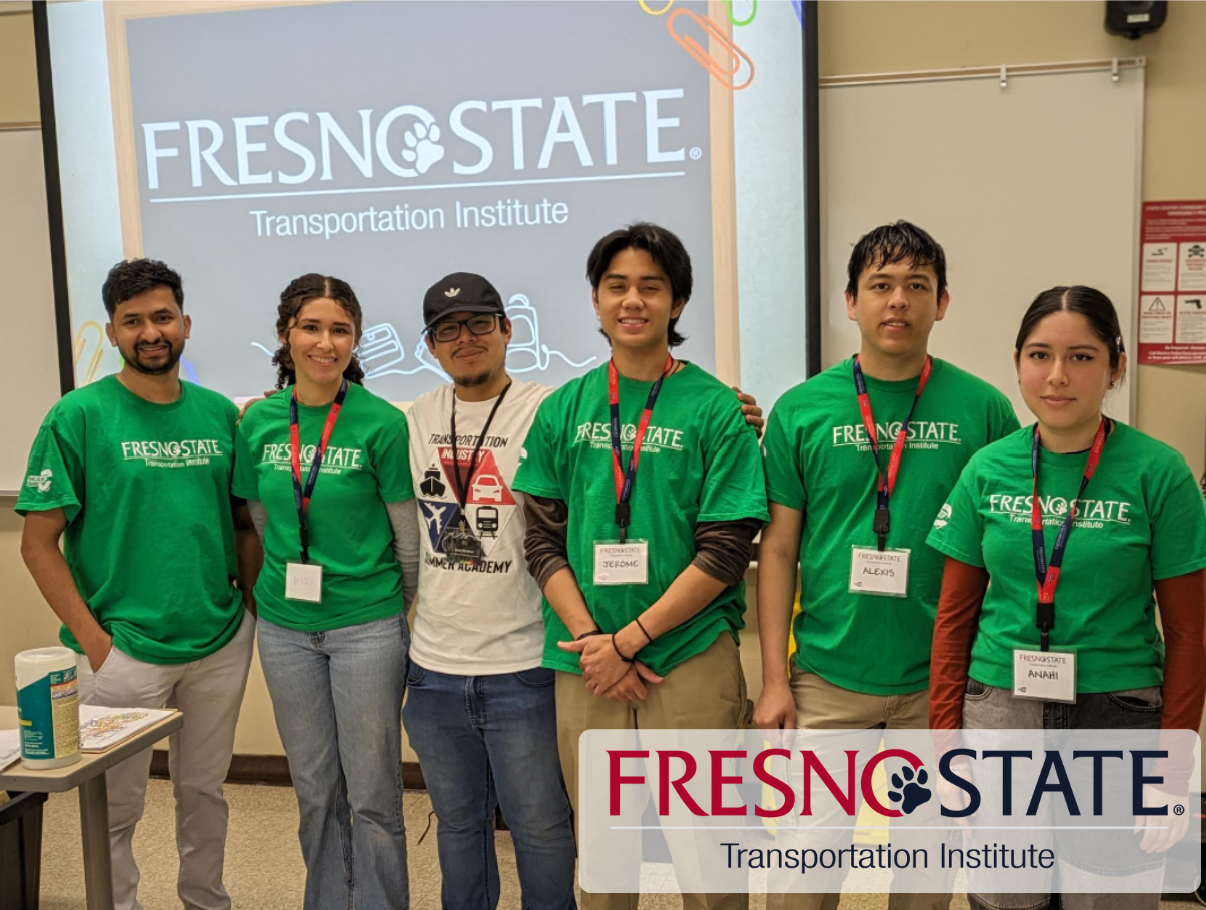
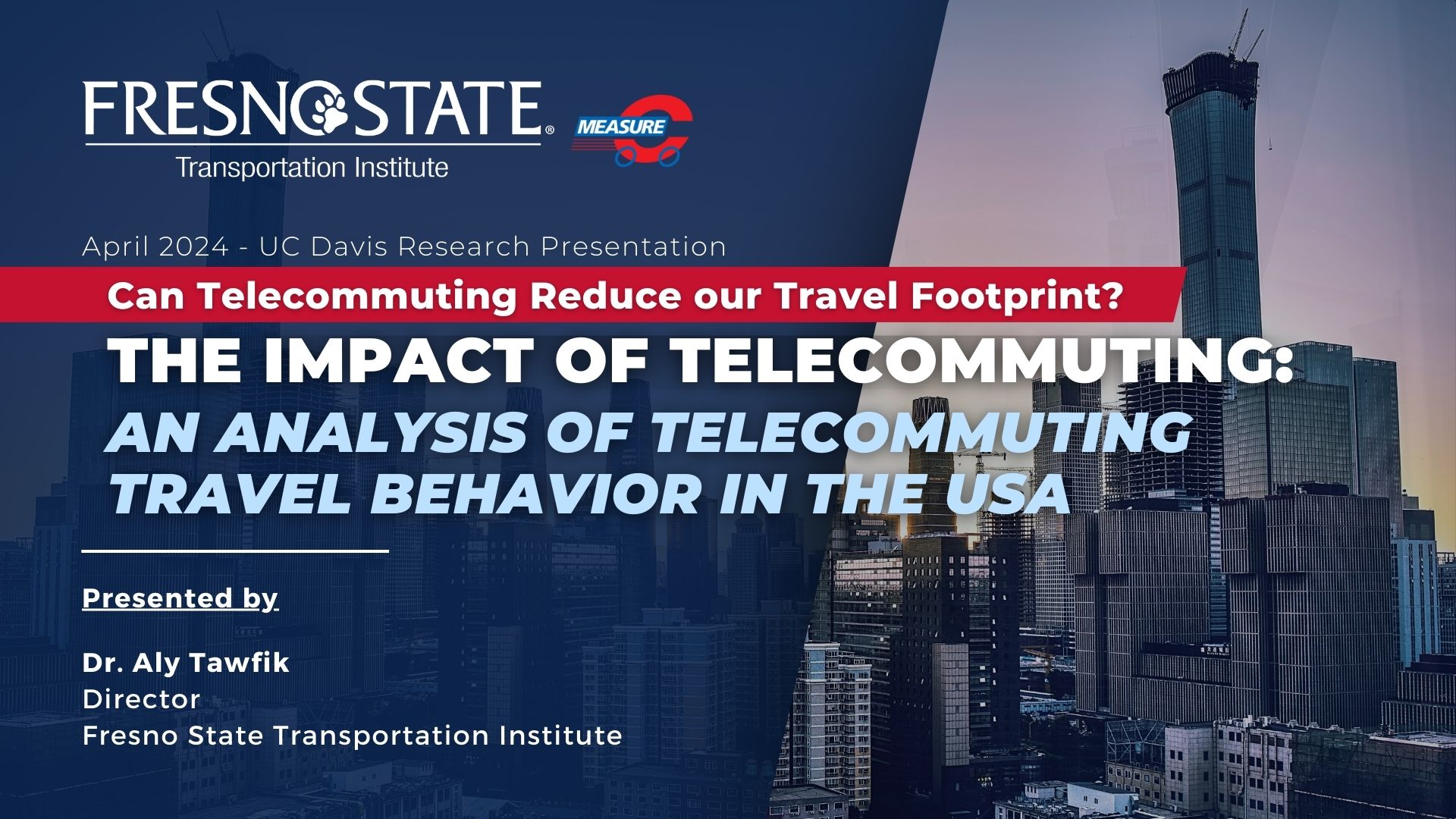
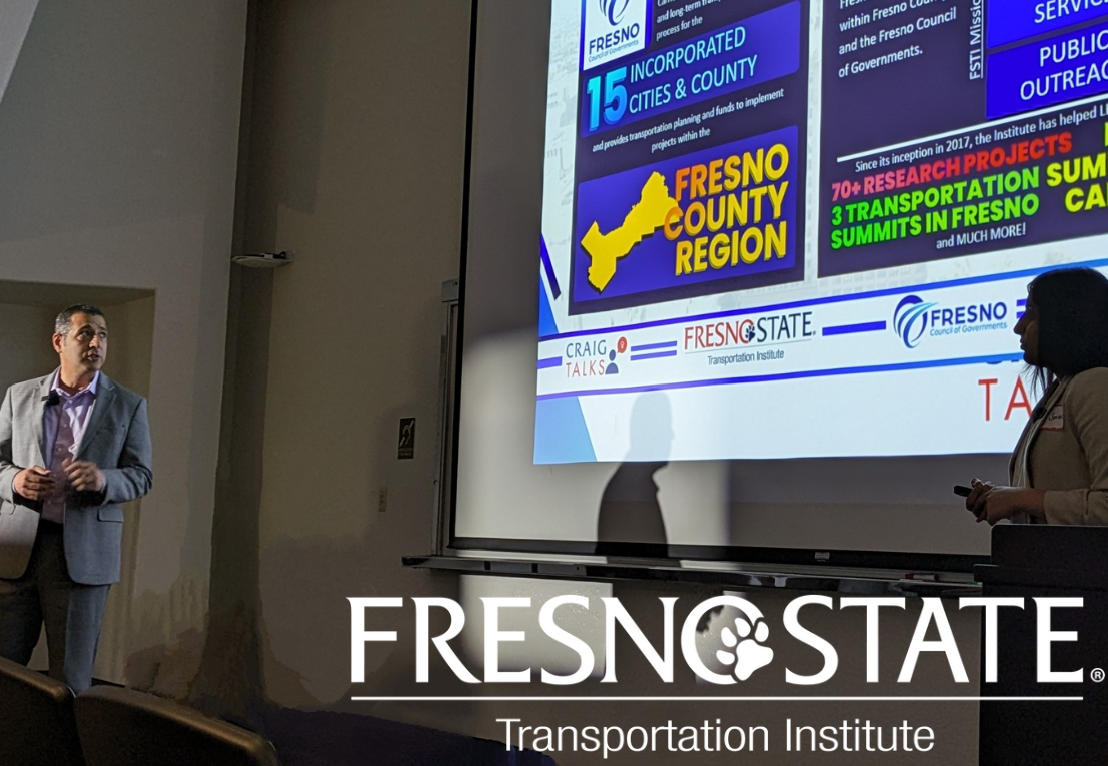
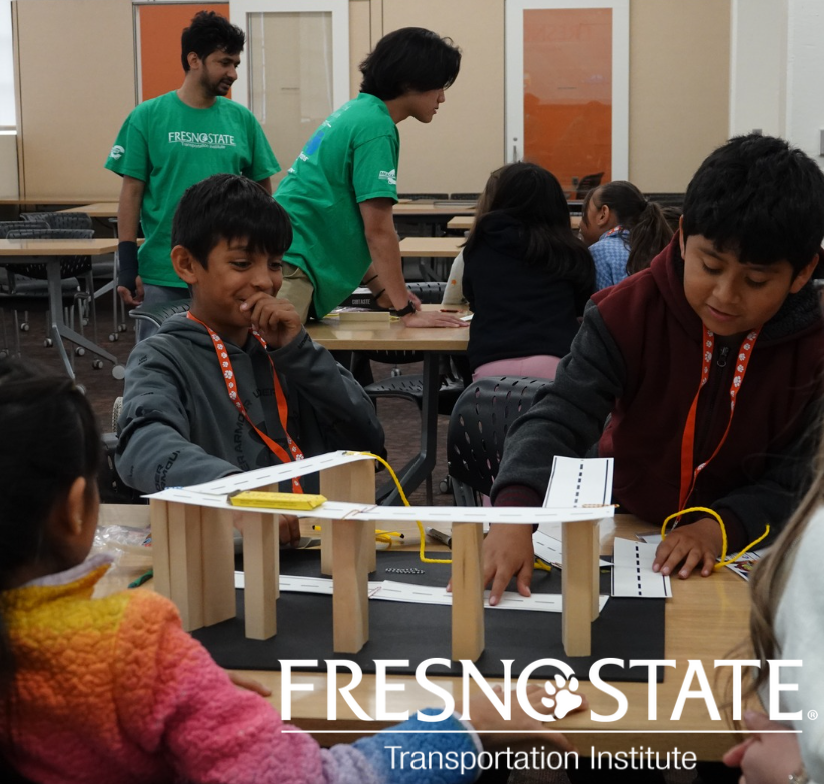
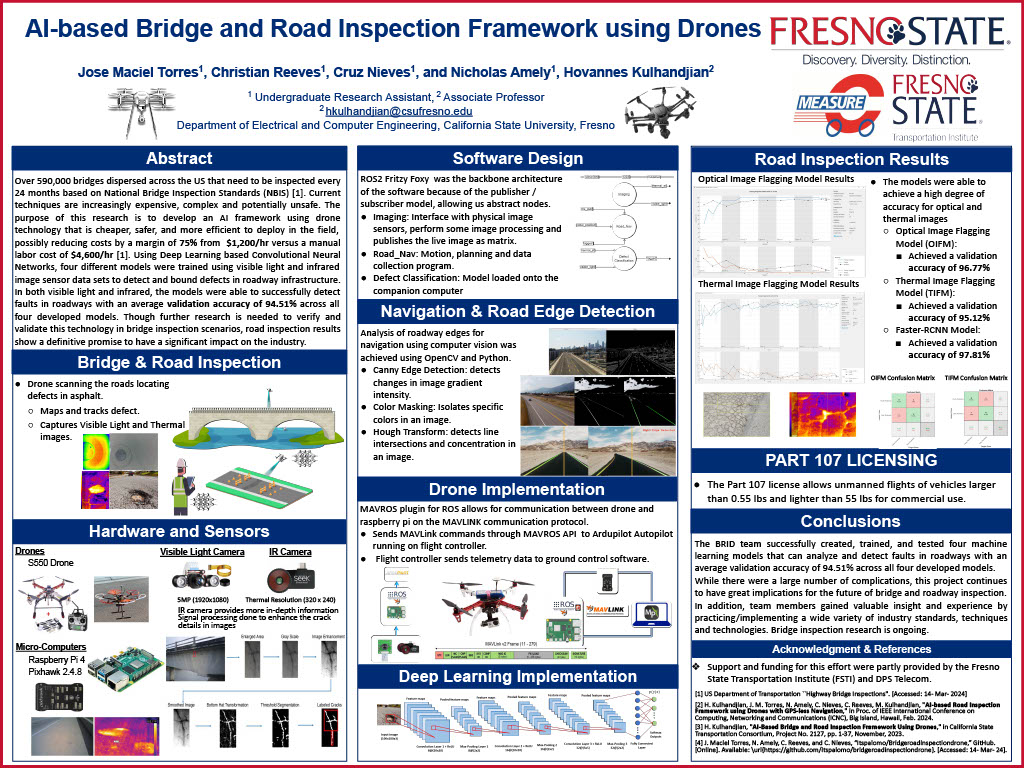
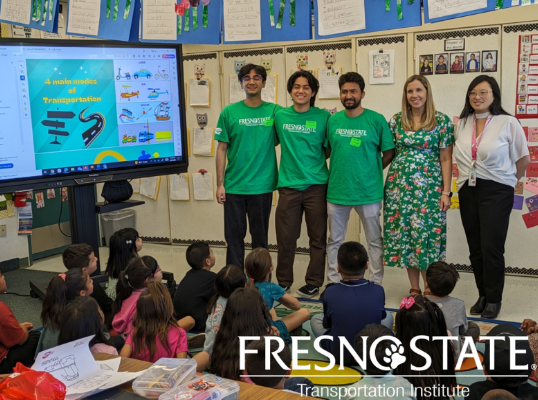
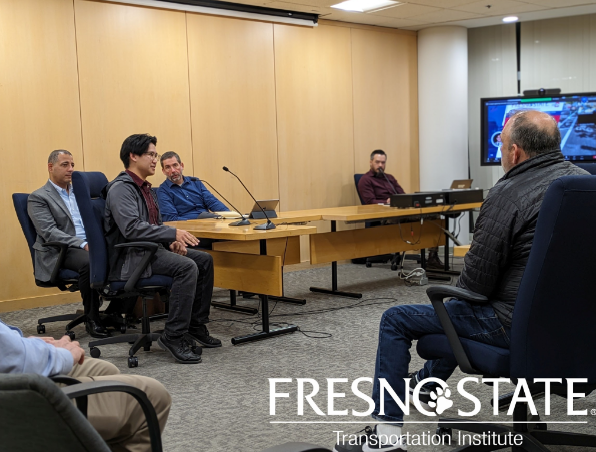
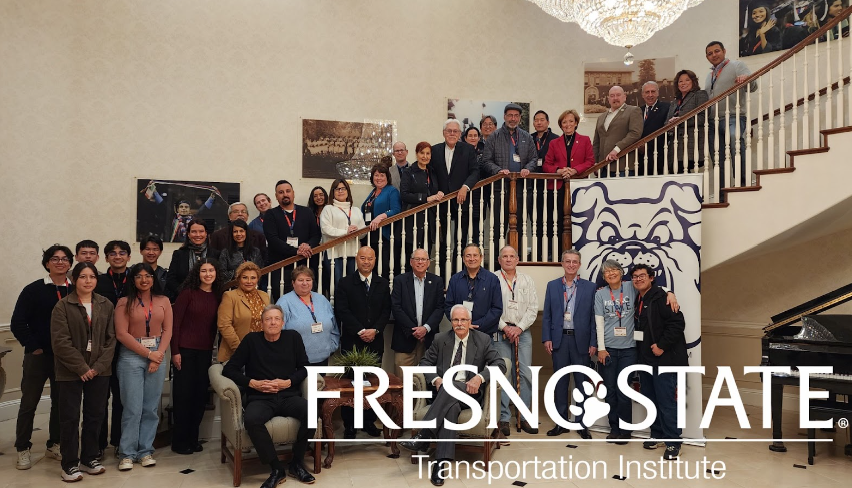
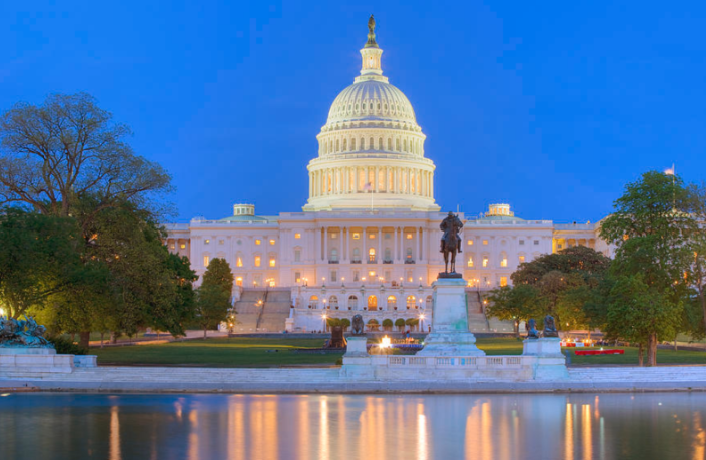
2023
After months of planning, designing and crafting, artist Kathleen King revealed her bicycle sculpture at the Fresno International Transportation Innovations (FITI) Summit on October 27, 2023.
The design drew inspiration from the theme of Planning, Education, Design, Advocacy and Lifestyle (P.E.D.A.L.). The sculpture features three segments: Emil, representing a hard-working father and night rider; Flora, featuring a young girl biking from/to school; and Oblivia, depicting oblivious riders with earbuds and a dog named Raisin.
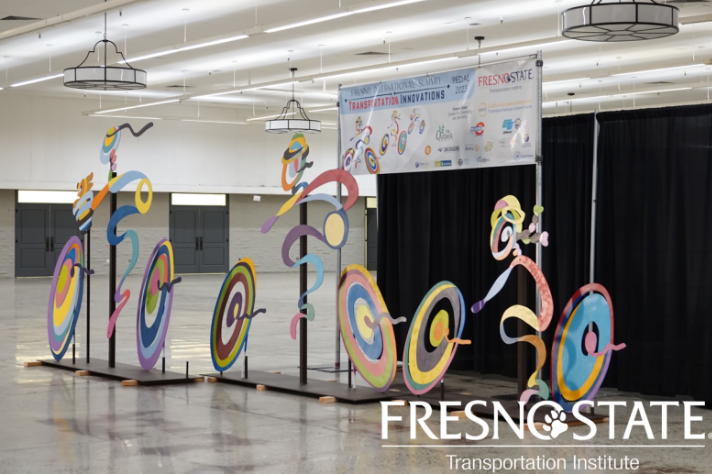
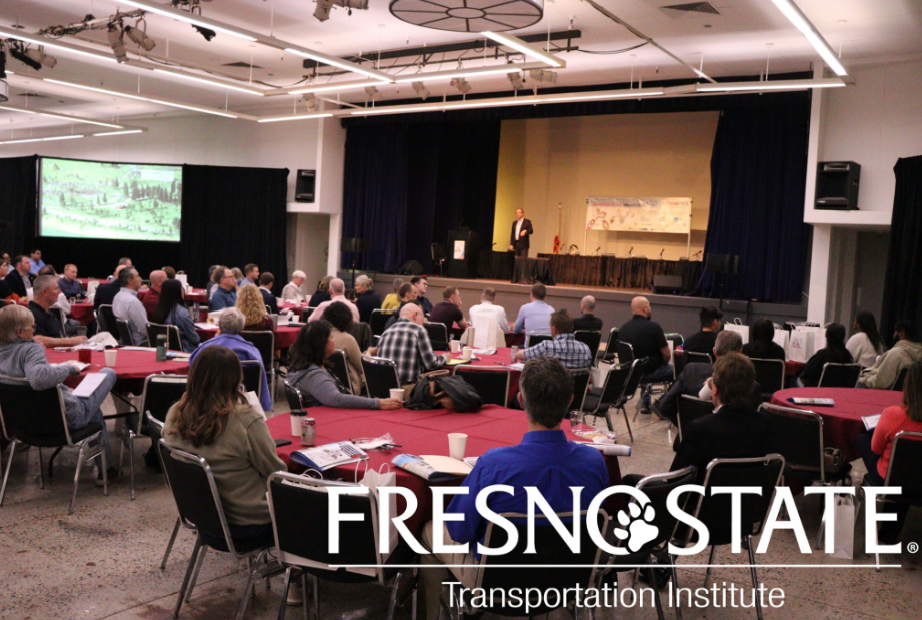
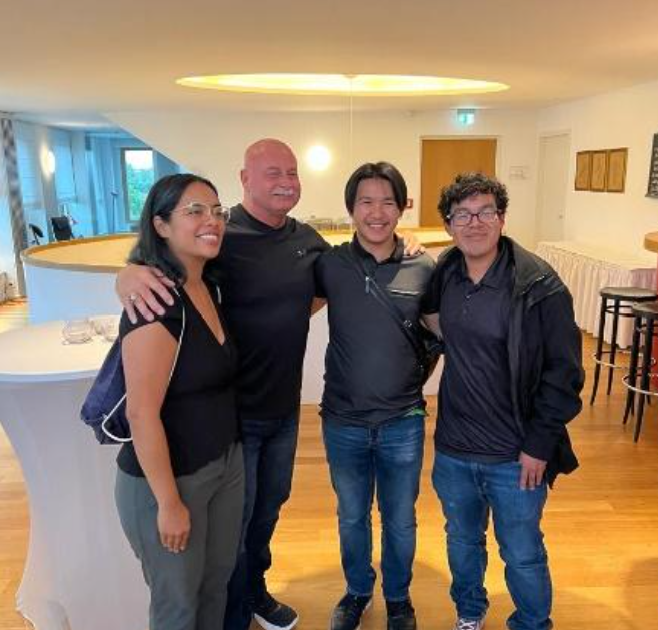
FSTI collaborated with the Madera Unified School District to host
the Bike Camp, held from July 17-21, 2023. Each participating student received a bike and
various biking gear--generously discounted and procured by Rubber Soul--and were
delighted to take their personalized bikes home from the camp.
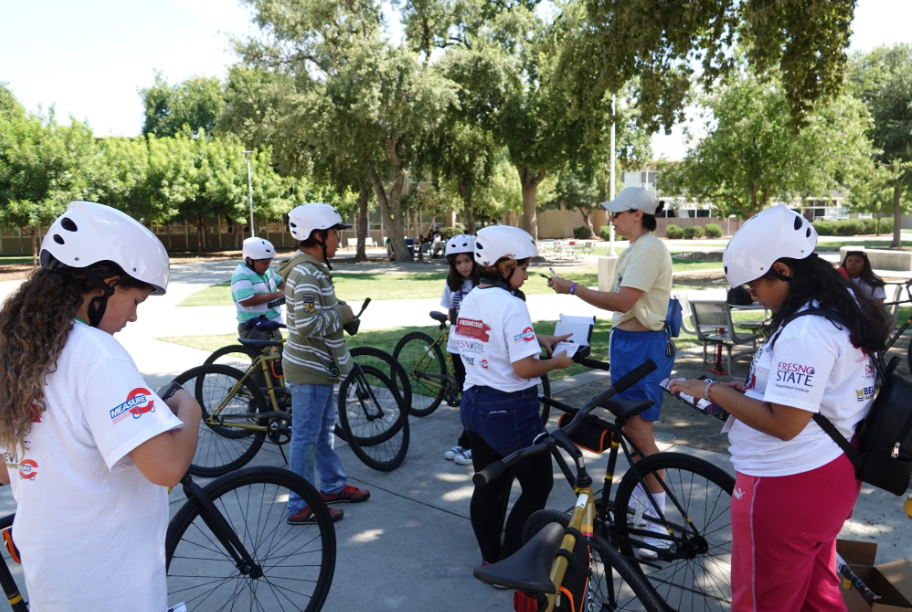
FSTI hosted the Summer Transportation Industry Academy camp in collaboration with the Madera Unified School District from July 10-14, 2023. This engaging program catered to 6 th to 8 th grade students and took place at the Fresno State campus. The camp was organized into daily field trips and hands-on activities exploring the history and significance of various transportation modes. The students also worked on a team project based on their hometown of Madera.
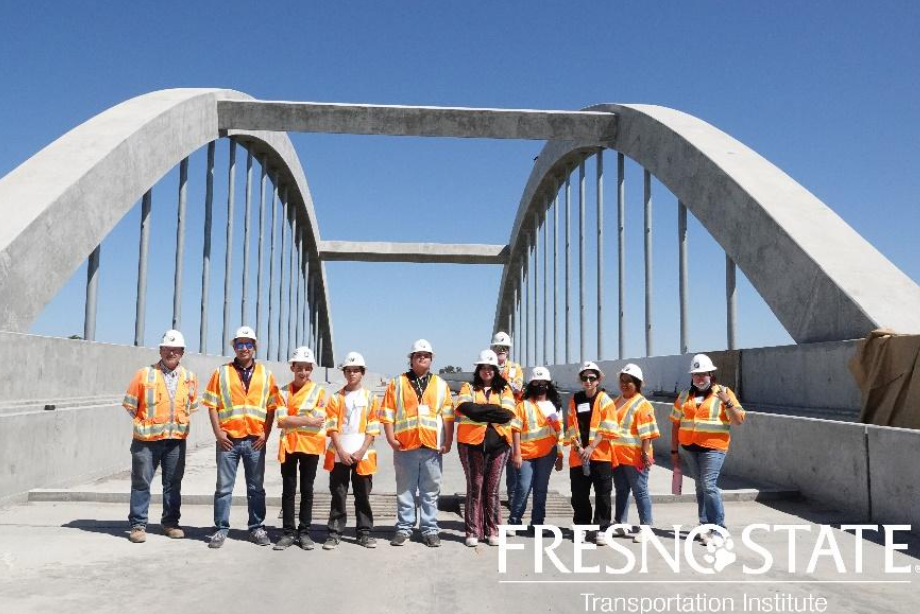
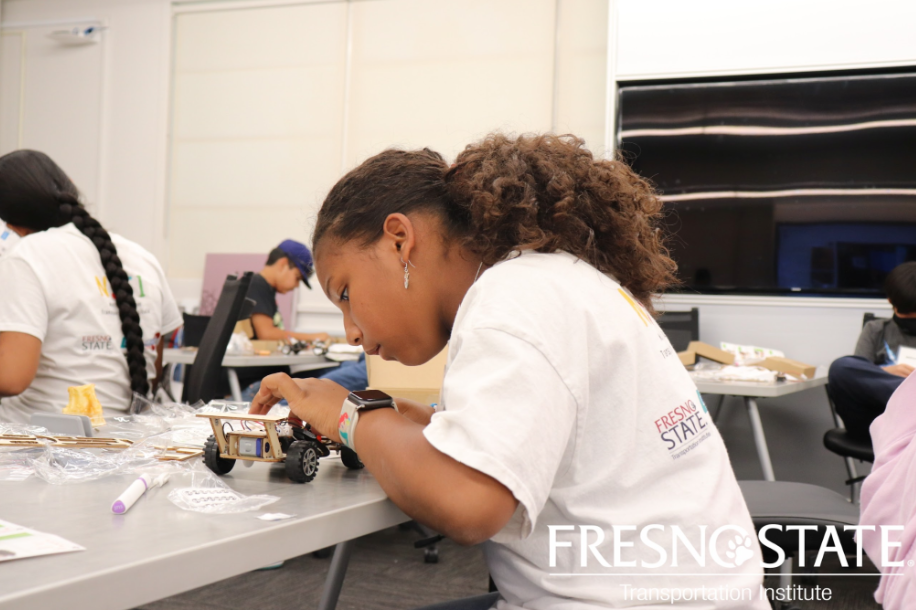
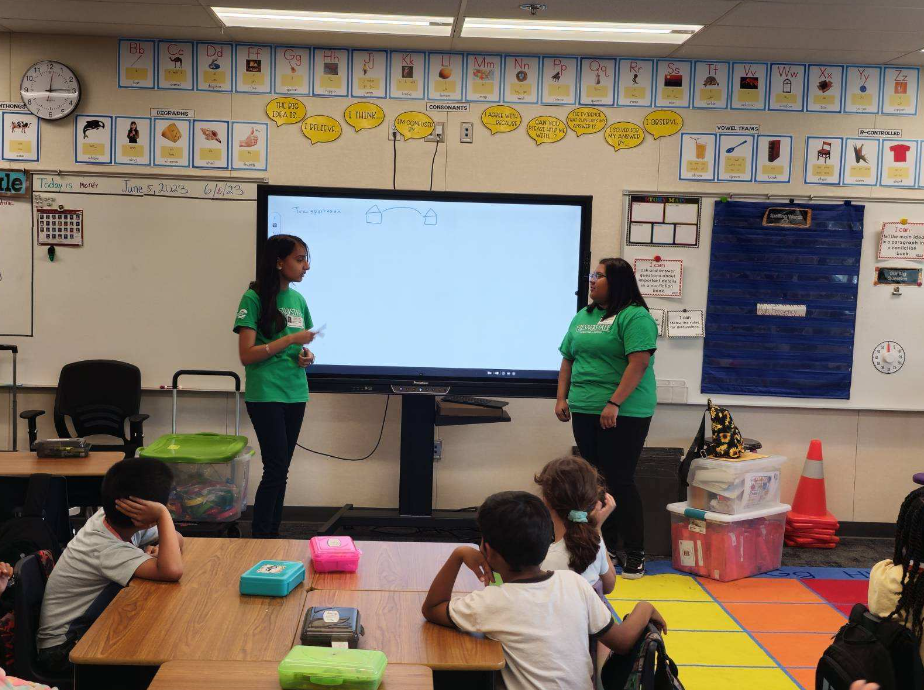
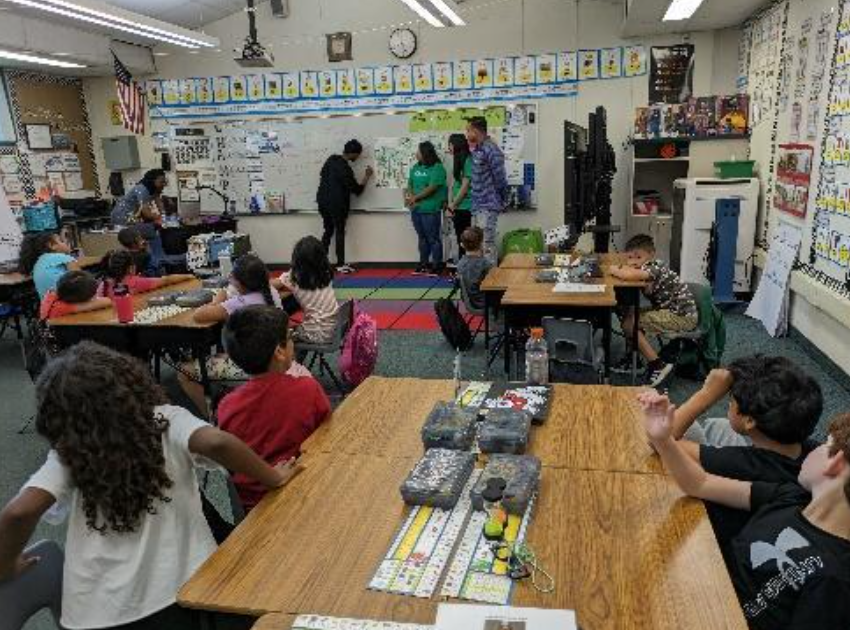
Lucca Lorenzi: Lucca graduated with a Bachelor of Arts in media, communications and journalism.
Vajidullah Molvizadah: Vajid graduated with his Master’s degree in Industrial Technology through the Jordan College of Agricultural Sciences and Technology.
Shubham Fnu Rana: Shubham graduated from Lyle’s College of Engineering with a Master’s degree in Civil Engineering.
Utsav Shah: Utsav also graduated from Lyle’s College of Engineering with a Master’s degree in Civil Engineering.
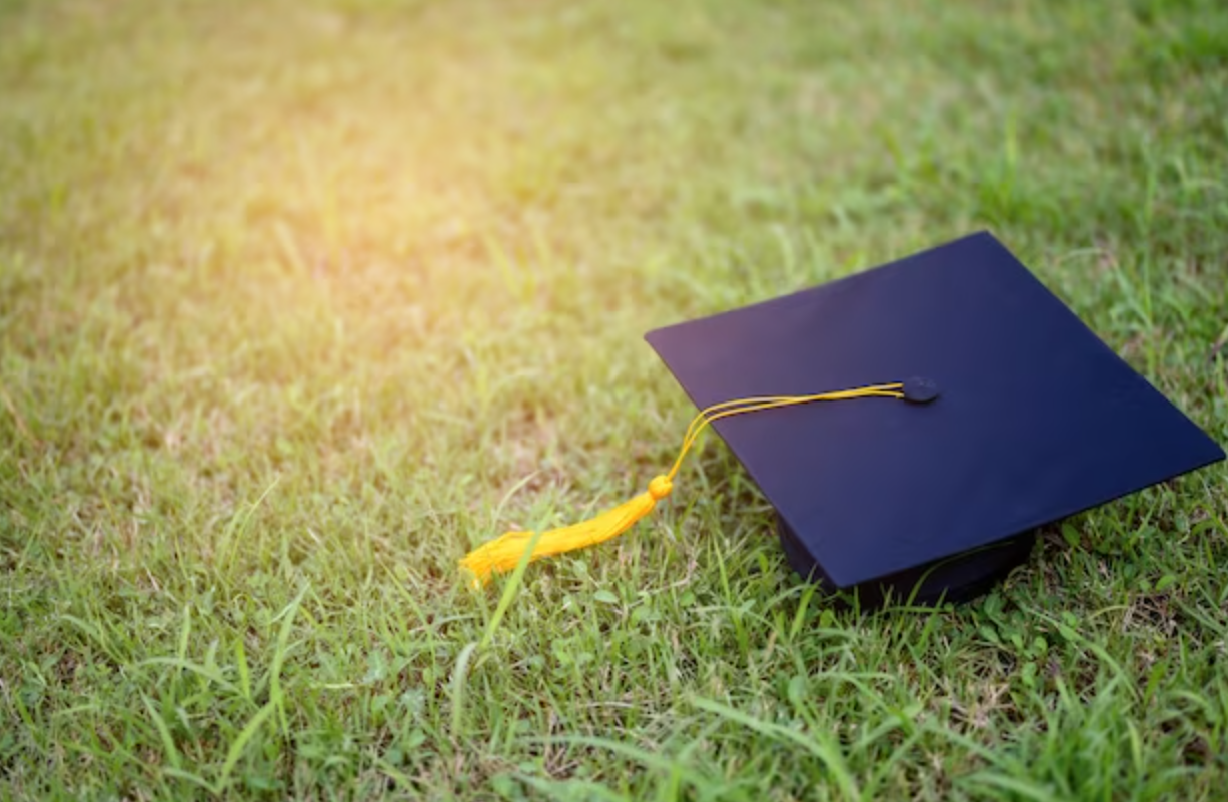
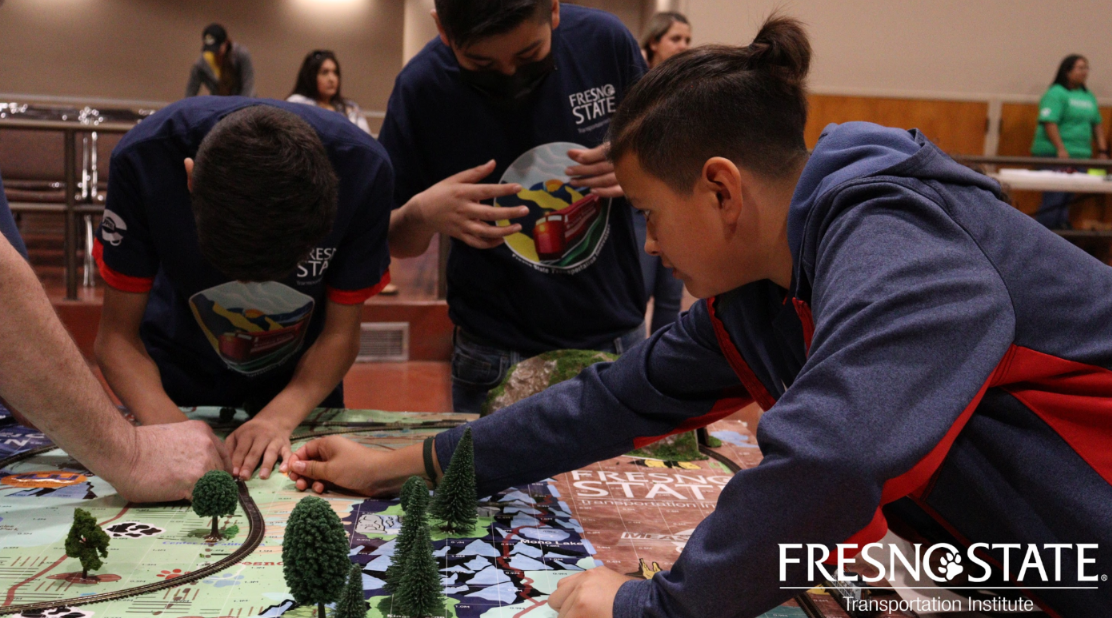
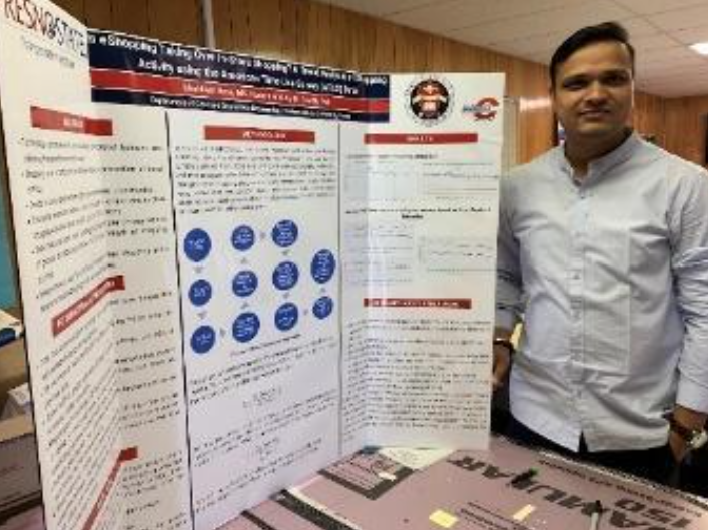
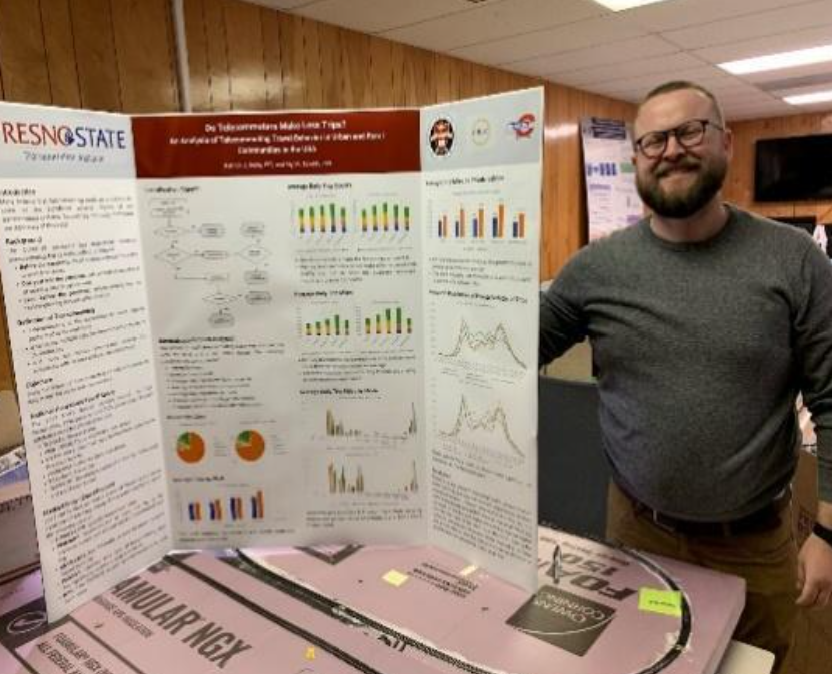
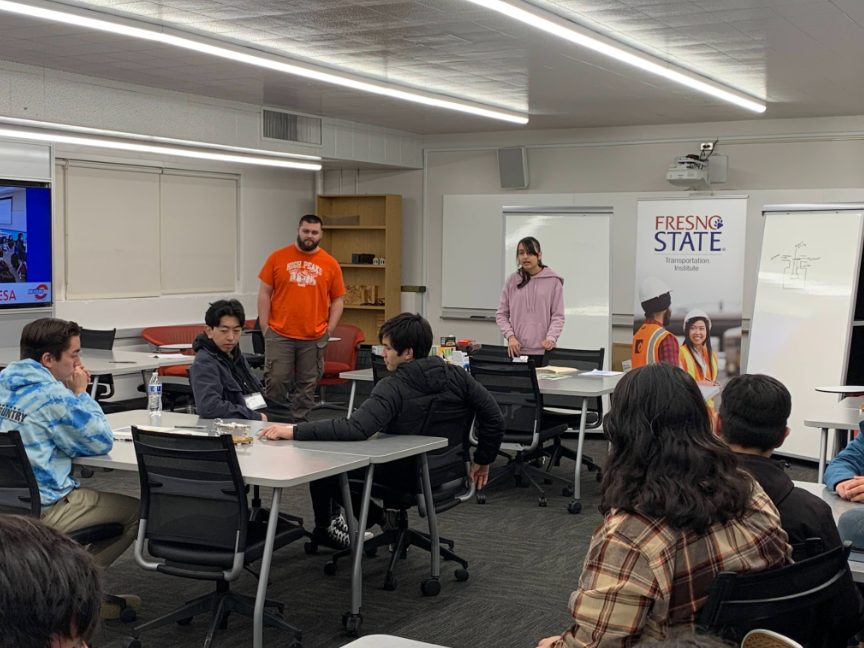
2022
FSTI looking for volunteers who will coach or mentor to help guide the students of Fresno County in this competition. Please check the flyer and sign up page for more details.
FSTI launches Railroad Model Competition for schools, first 30 schools gets a FREE kit for the competition. Please click the button for more information.
Maria Calahorra-Jimenez Ph.D., Beavers Assistant Professor of Heavy Civil Construction Management at California State University, Fresno, published a research paper on Contracting Strategies: A Different Approach to Address Long-term Performance.
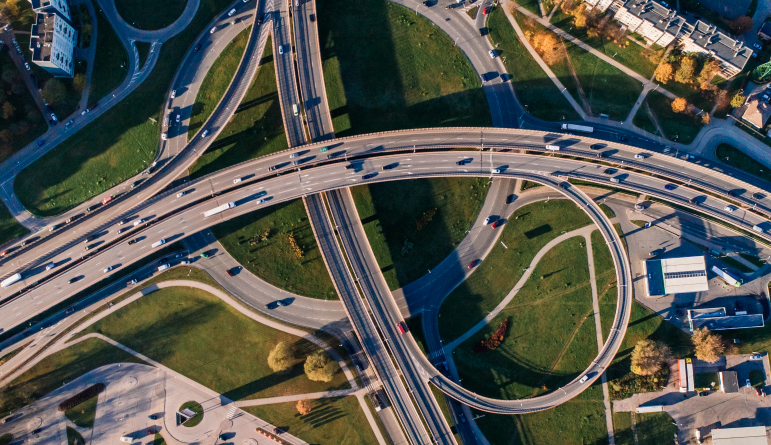
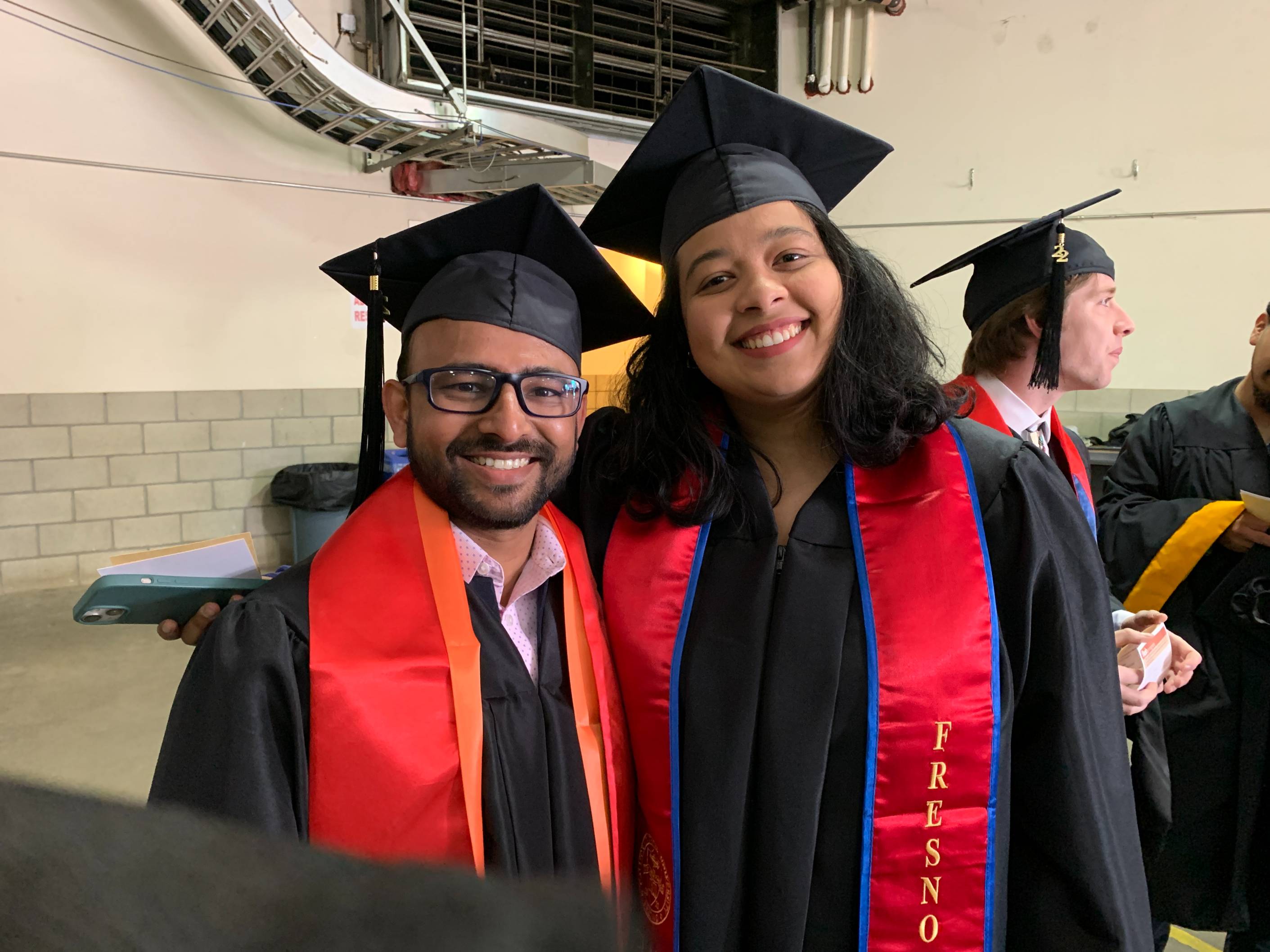
The birth of K-12 Railroad Model Competition Explained.
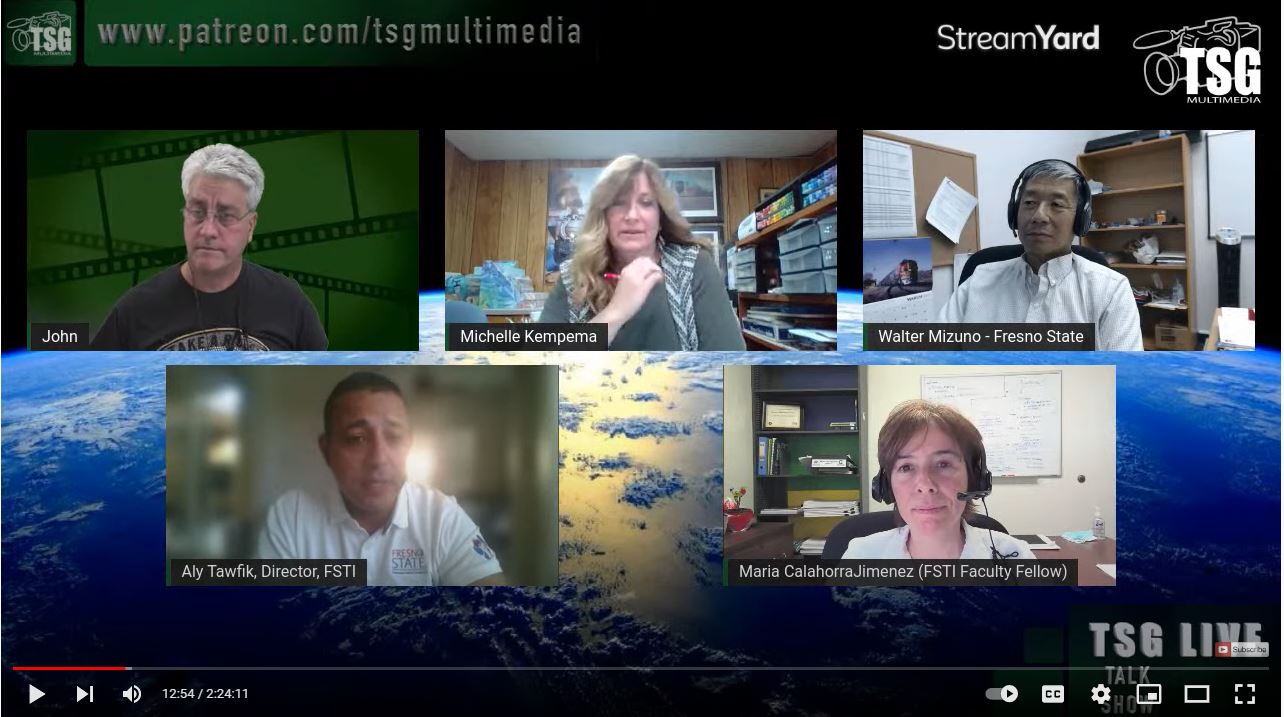
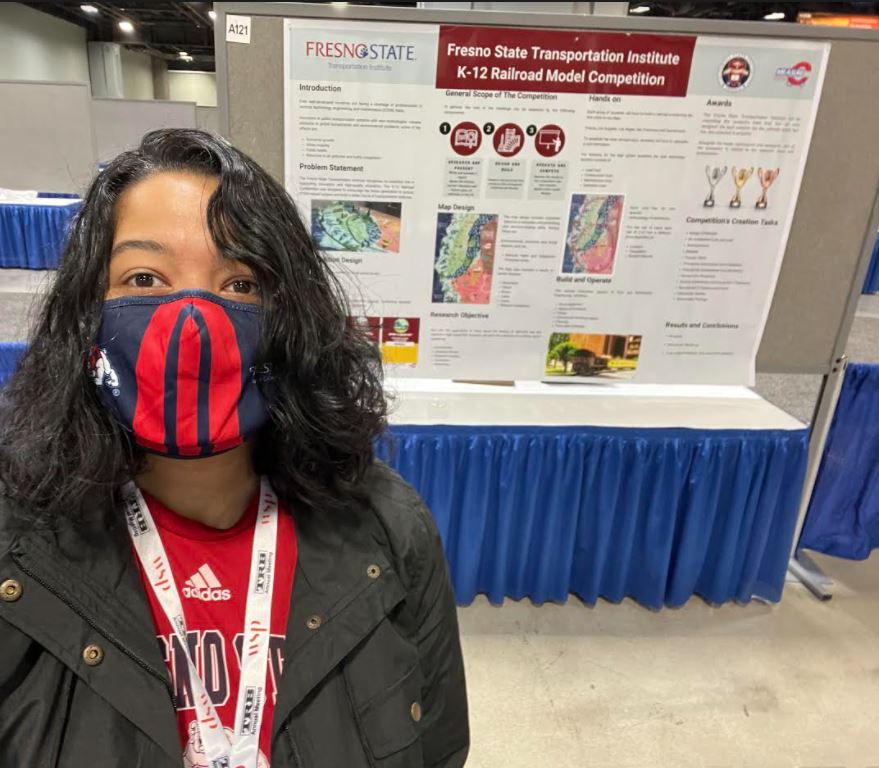
2021
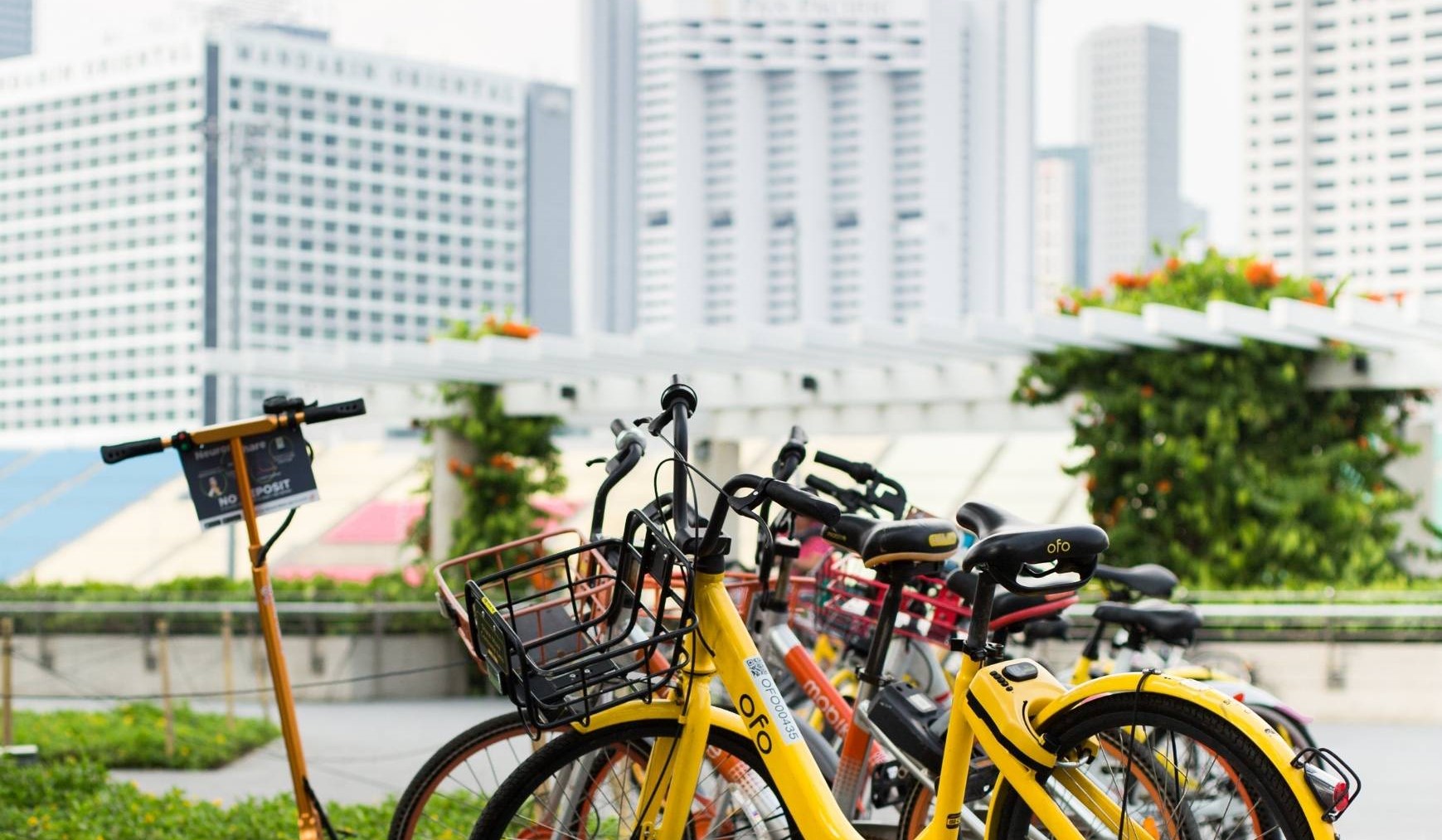
LYLES COLLEGE ALUMNA FOLLOWS MOM’S MANTRA TO ‘STAY STRONG’
Linda Lim, Fresno State alumna of Lyles College of Engineering and currently a doctoral graduate research fellow at the University of Virginia, recently received the National Science Foundation Fellowship, a highly competitive award. An annual stipend is awarded for both the recipient and their institution for three years.

2020
The methods and devices used to quantify the data for these answers included smoke candles, videotaping, air speed measurers, temperature, relative humidity and CO distributions, pressure differentials, particle counts, 3D numerical simulation models and virus numbers and their infectious abilities. Additionally, three prokaryotic viruses (nonharmful) were utilized to simulate the presence of coronavirus within the bus: MS2, T7 and Phi 6 (Note: the Phi 6 virus is most similar to the coronavirus). The experiment tested various methods to aid in purifying the airflow and surfaces within the bus. In regards to the airflow, the photocatalytic insert and the UV-C lights proved most effective in eliminating the virus. Please see the infographic for further details.
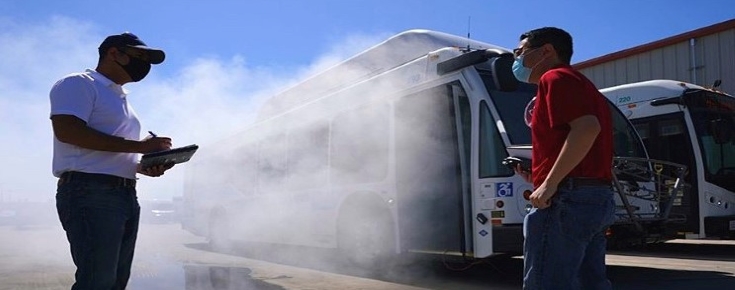
Dr. Hovannes Kulhandjian, assistant professor for Fresno State's Department of Computer and Electrical Engineering and Fresno State alumnus, Wyatt Greives, research paper, titled, "Design and Experimentation of a Low-cost Receiver for Visible Light Communications" was selected for the IEEE LATINCOM 2020 Conference.
All submissions undergo a rigorous peer-review by a committee of internationally
recognized experts. Papers selected for the conference have been judged on criteria
of timeliness, technical content, novelty, and quality of presentation. Only top-ranked
papers were selected for presentation in IEEE LATICOM 2020.
Click here for more information about Dr. Kulhandjian and Greive's research
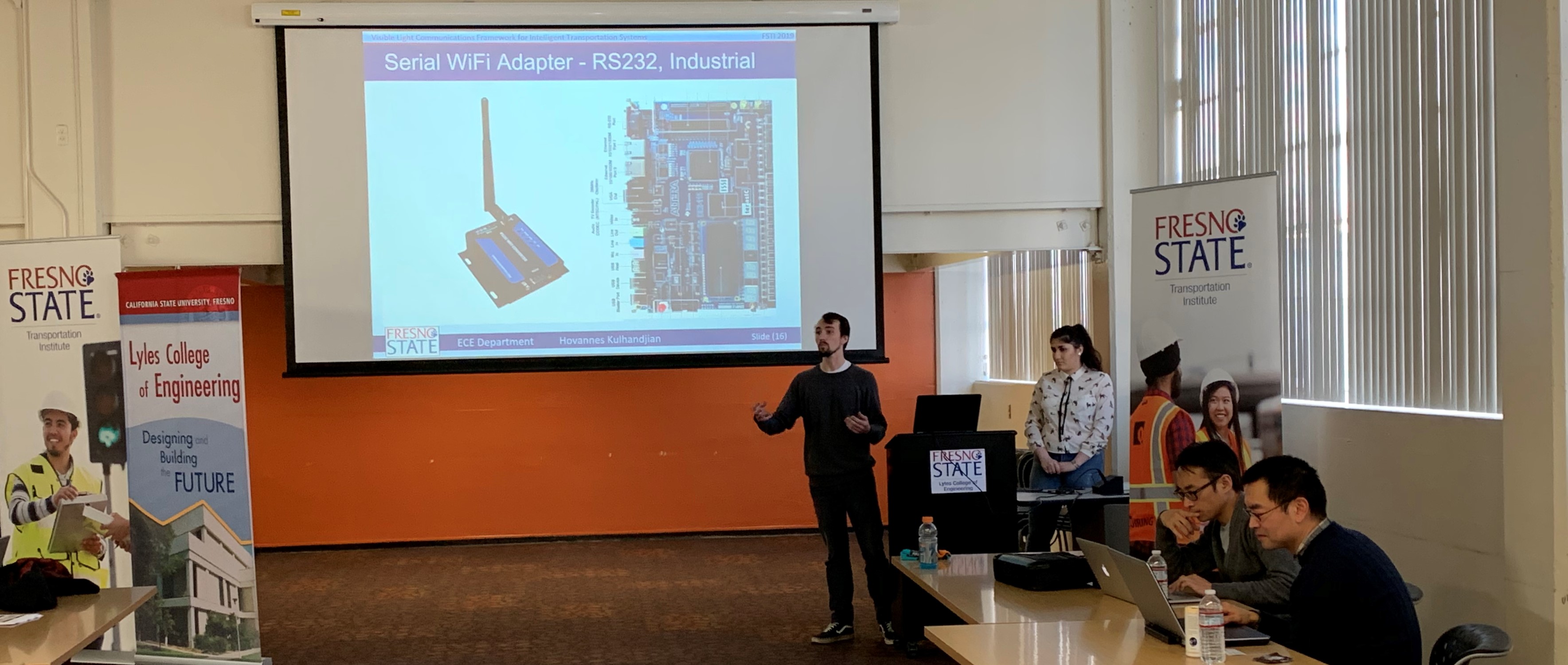
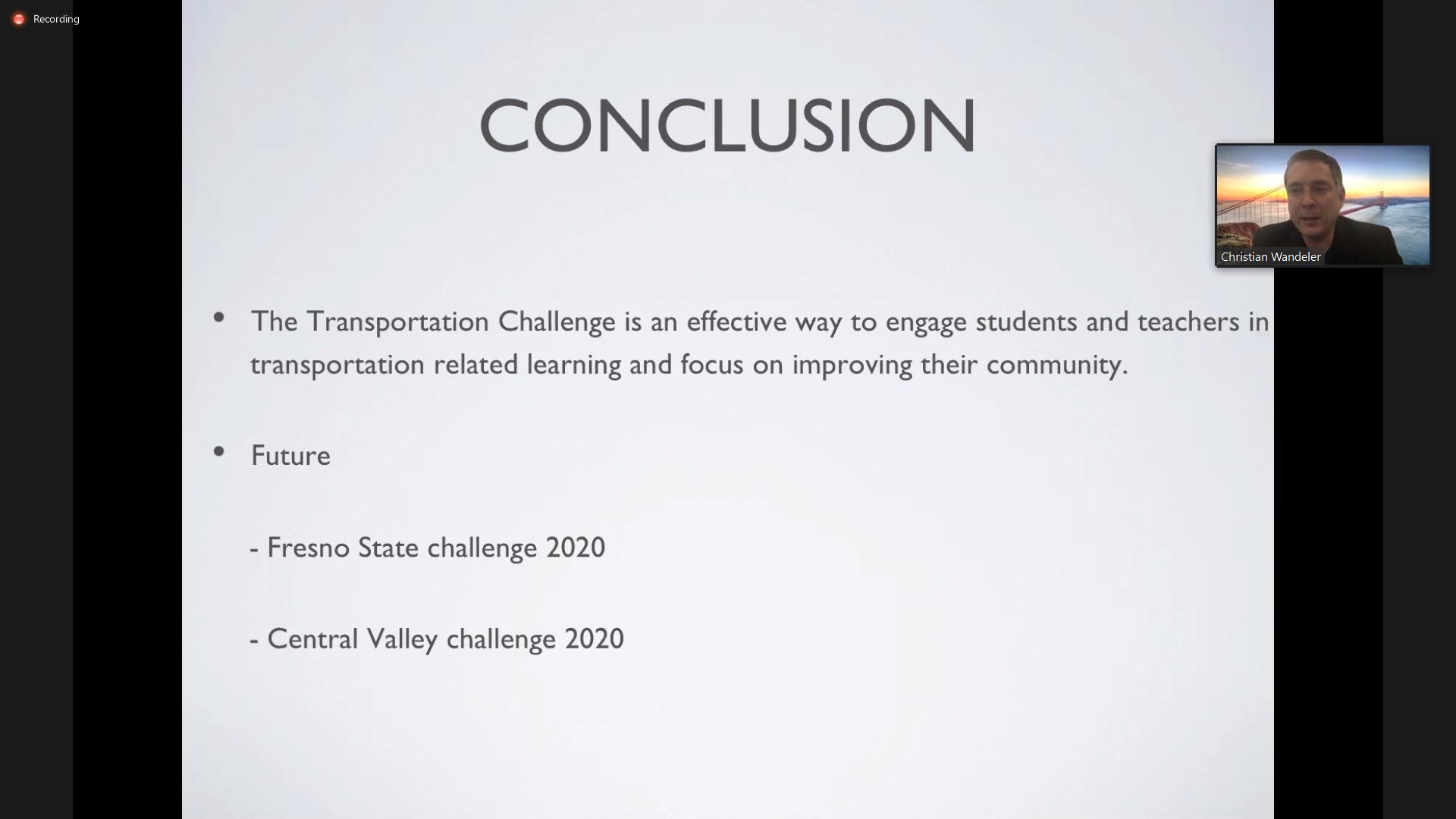
The findings of Dr. Samer Sarofim’s project, “Effective Communication Message Strategy for Enhancing Traffic Safety in Fresno County: The Role of Time Horizon, Regulatory Focus, and Perceived Personal Control,” has been highlighted in the TRB's July Newsletter as "Framing messages for pedestrians, cyclists, and motorists.” The Transportation Research E-Newsletter is designed to highlight selected transportation research-related activities taking place at the federal and state levels and within the academic and international transportation communities. More than 70,000 people from around the world receive the E-Newsletter. Learn more about Dr. Sarofim's Research.
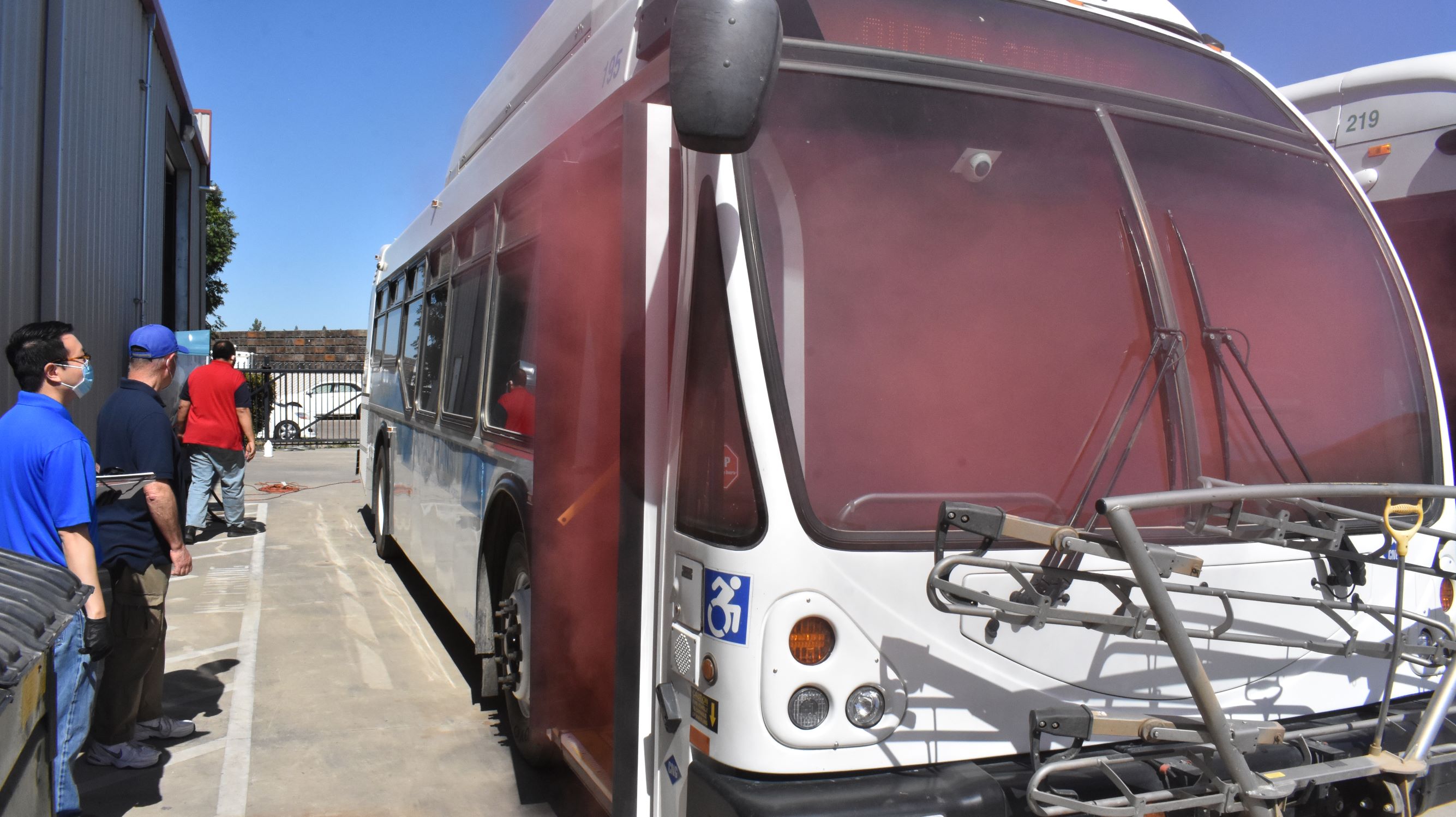
The first quarterly newsletter has been developed, finalized, reviewed and released. The newsletter includes six articles including research and student spotlights as well as a section for Upcoming Events and social media handles. The Marketing Department had put all new newsletters on hold due to the Covid-19 pandemic; so, FSTI’s first newsletter was sent out Thursday, June 25, 2020. View the newsletter here.
Abstract of the proposal:
Today, the agricultural producers of California’s Central Valley face increasing competition from foreign farms in the worldwide marketplace. As successful practices pioneered in our valley are disseminated overseas, competitors in nations with systemwide lower wage rates or more efficient infrastructure, are putting California’s farmers at a disadvantage. In order to stay competitive, our farms’ costs of production need to decrease. One such area where the potential for improved efficiencies, and therefore cost-cutting exists, is in the area of transportation of the valley’s agricultural products. In particular, railroads are only lightly utilized, despite the mode’s ability to move each ton of freight almost four times more efficiently per mile than trucks. Currently, the vast majority of the Central Valley’s agricultural products are transported from farms to endusers or to Pacific Ocean ports such as the Port of Los Angeles, the Port of Long Beach, and the Port of Oakland, entirely by trucks. Often the truck equipment is owned and maintained independently by individual agricultural producers, which is not an economically efficient method of agricultural products transportation because it does not make use of economies of scale. Current research by Dr. Green and Dr. Liang suggests that the introduction of a combination of shared transportation assets and facilities, and implementation of a greater use of multi-modal transportation strategies involving railroads, has the potential to decrease the total costs of production for Central Valley farms and improve the competitiveness of California’s agribusinesses in the international marketplace.
This proposed research intends to fill this gap. Specifically, our goals are to (a) quantitatively assess the economic potential of substantially-increased utilization of railroad service by California’s agricultural producers, and (b) develop models to suggest specific, Central Valley locations and characteristics of possible agricultural loading facilities for optimal economic results. We will first study the technological changes in railway transportation of agricultural products, and second, assess recent developments in railroad operations strategy such as “Precision Scheduled Railroading” (PSR). Then, agricultural producer data collected through surveys will be utilized in conjunction with railway infrastructure data for the California Central Valley to produce equations to model where construction of cooperative railroad agricultural loading facilities and related infrastructure could be located.
The findings of Dr. Shahab Tayeb’s project, “Securing the Emerging Technologies of Autonomous and Connected Vehicles,” has been highlighted in the TRB's June Newsletter as "Enhancing security of automated vehicle data”. The Transportation Research E-Newsletter is designed to highlight selected transportation research-related activities taking place at the federal and state levels and within the academic and international transportation communities. More than 70,000 people from around the world receive the E-Newsletter. Learn more about Dr. Tayeb's research..
COVID-19 Transit Bus Air Circulation and Virus Mitigation Study
COVID-19 has changed the world and our lives dramatically. Unfortunately, it also appears that this situation will likely continue for at least another year. As states and governments in the US and around the globe start easing up the different shelter-in-place policies, life is expected to slowly return to some level of normalcy. People around the globe will start going back to work and catching up on delayed errands and obligations. People will start sharing tight spaces on limited capacity public transportation modes such as busses, metros, trains and planes. Potential infections on these modes could be concerningly high, and rightfully so. Social distancing policies may not be sufficient on public transportation modes, since HVAC systems are likely to just redistribute the air and air-borne virus throughout the entire cabin, risking the health of both drivers and passengers. Accordingly, this study aims to understand air circulation patterns inside the cabins of busses, as well as test the impact of different approaches in mitigating potential virus circulation and infection.
Many devices, metrics and experiments are utilized and implemented to understand and quantify both air circulation as well as virus mitigation inside the bus. Some of the devices and metrics that are adopted include smoke candles; videotaping; air speed; temperature, relative humidity and CO distributions; pressure differentials; particle counts; 3D numerical simulation models, and virus numbers and their infectious abilities. Two different prokaryotic viruses are utilized: MS2 and T7. And, different approaches are implemented to evaluate the potential of mitigating COVID-19 infections in public transportation modes; e.g. positive pressure environment inside the cabin, HEPA filters (with MERV rating above 15), concentrated UV exposure with charged carbon filters in the HVAC systems, center point photocatalytic oxidation technology, and surface antiviral agents. Additionally, these different experiments are implemented under different vehicle conditions, e.g. stationary, in motion, with doors open and shut, with driver and passengers windows open and shut, and with HVAC in cooling and heating operations. Furthermore, these experiments are conducted on different vehicles, with different sizes and with different HVAC configurations. Results of this study could be significantly valuable and directly lead to improved protection of passengers and drivers on public transportation modes against all forms of air-borne viruses both locally as well as across the entire globe.Learn more about Transit Bus Air Circulation.
Developing a Feasible Business Model for Expanding the EV Market to Lower Income Californians
The ultimate objective of this research project is to develop a feasible business model for expanding the EV market to lower income Californians. The developed model would address existing barriers to both auto dealers as well as low income Californians. Different tasks, employing a multi-method approach, have been designed to achieve this objective. The methods include: An extensive review of current knowledge and experiences; Data collection via a quantitative statewide survey; Qualitative focus groups and in-depth interviews with relevant stakeholder groups, advocacy groups and experts; and A feasibility analysis and business model development. The research team believes that the result of this work will lead to the development of a feasible business model that will be beneficial for both auto dealerships and low income Californians. Expansion of the EV market to lower income households would lead to cleaner air, reduce speed/impacts of climate change, and decrease cost of energy. Accordingly, results of this work would be initially benefiting the private sector, low income Californians and all Californians. Yet, later expanding to other states, countries and possibly worldwide. Learn more about Expanding the EV.
Creating Safer Communities for Use of Active Transportation Modes in California: The Development of Effective Communication
Message Strategy and Outreach for Vulnerable Road Users
The ultimate objective of this research project is to develop a model to showcase the differential effect of message framing on attitudes and intended behaviors related to pedestrian and cyclists traffic safety practices. Further, this research project will determine effective outreach strategies and communication channels for each segment of the vulnerable road users. This research will investigate, through experiment, survey, focus groups, and interviews whether and why various message and outreach strategies have different motivational, attitudinal, and behavioral effects on various vulnerable road user groups and subgroups.
This research contributes to creating safer communities and greater opportunities for use of active transportation modes (i.e., biking and walking) through inducing positive behavioral changes to enhance traffic safety via effective messaging. Results will inform and improve decision-making on transportation-related issues, namely traffic safety. The research team believes that California transportation authorities, professionals, and advocacy groups will be able to use the results of the proposed research to effectively allocate the communication effort and spending to induce attitudinal and behavioral changes that shall impact the safety of active transportation modes. Learn more about transportation modes.
The Central Valley Transportation Challenge
The Central Valley Transportation Challenge 2020 is an opportunity for K-12 students to explore transportation topics and careers in meaningful and authentic contexts. We will pose a transportation related challenge to students (e.g. How might we make walking to school safer?) and then support them in the development of a solution by guiding them through a design thinking process and teaching them eduScrum (a novel pedagogy) to self-manage their project. During the challenge, we will connect K-12 students with university faculty and students, and transportation professionals. These interactions will deepen students’ knowledge as they engage in exploring transportation topics. Students will also explore transportation career opportunities in meaningful and authentic ways. The current target group are underserved minority students from rural areas in California. To improve accessibility, the project will develop a virtual transportation education hub with a shared repository of transportation-related resources. These resources will be available for future use by a wide audience of educators so that they can engage their students in examining transportation issues and career opportunities in meaningful and authentic ways. We hope that this project raises the interest of California youth in transportation-related careers, their interest as citizens in transportation related questions, and that their projects have a positive impact on their community. Learn more about Central Valley Transportation Challenge..
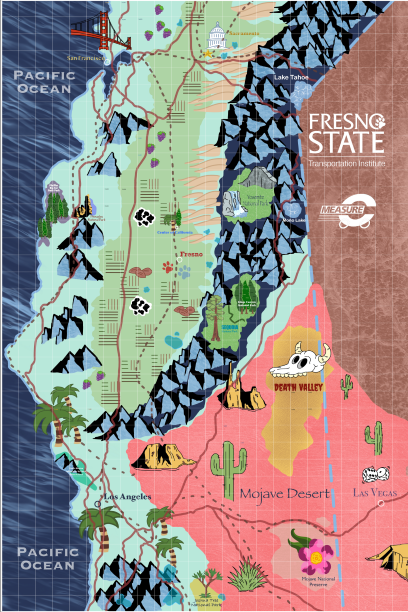
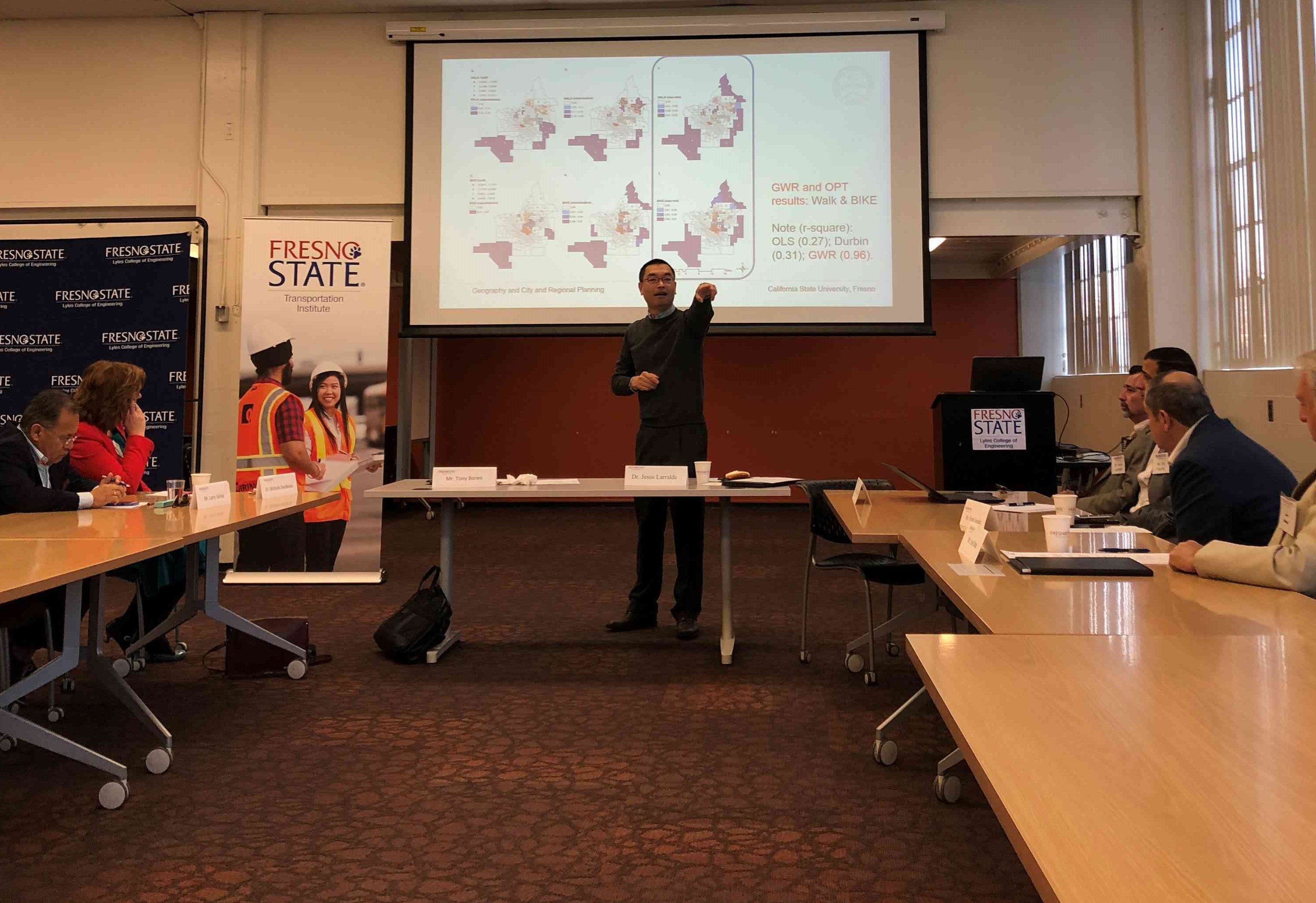
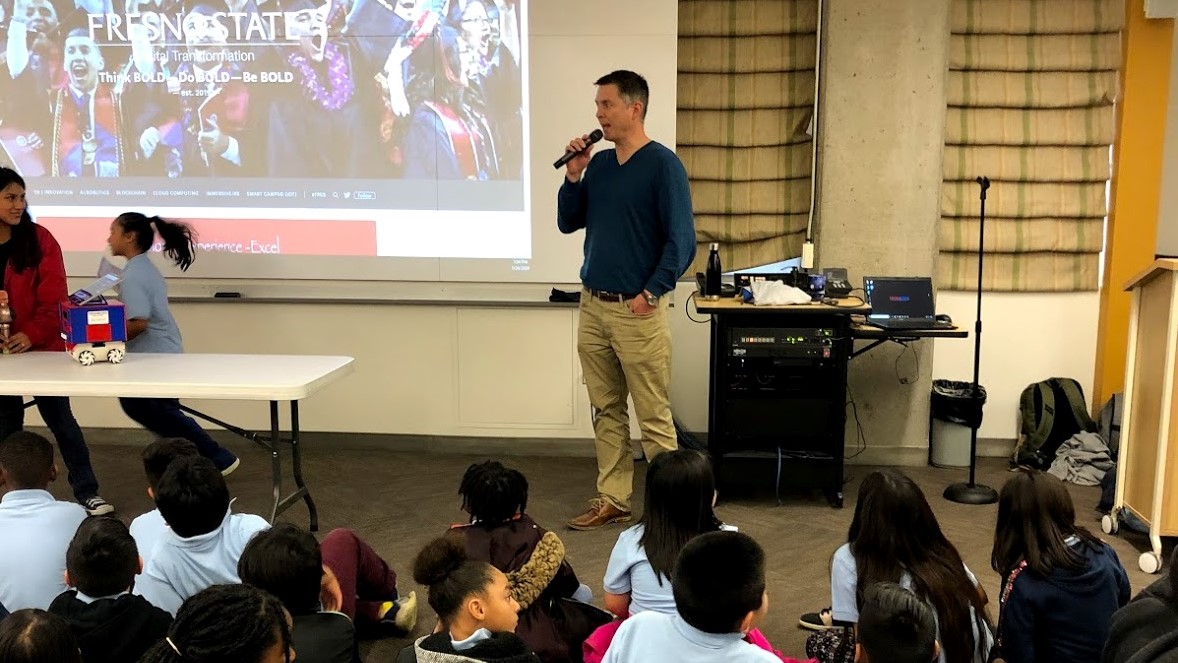
Dr. John Walkup’s project, “Effective Lessons Plans in Transportation, Phase II: The Lesson Plans,” has involved many students. Mr. Stephan Squire was one of the students trained in this FSTI grant-funded project on Dr. John Walkup curriculum model used for developing the transportation-related lesson plans. As a result of this training, Mr. Squire developed an intense interest in the curriculum model. He worked with Dr. Walkup on his book last summer and was named a coauthor. The book was made available for sale in January 2020.
Walkup, J.R. and S. Squire. The Art & Science of Lesson Design: Practical Approaches to Boosting Cognitive Rigor in the Classroom, Lanham, MD: Rowman & Littlefield (2020). ISBN-13: 978-1475854428
Twenty of the lesson plans developed during the project were made available to public school teachers throughout the state by their submission to CTE Online, the California Department of Education's online repository for career-technical education resources. View lesson plans.
2019
Dr. Christian Wandeler’s project, “Youth Design the Future of Transportation for Their Community,” has received media attention from KSEE Television station. KSEE, virtual channel 24, is an NBC-affiliated television station licensed to Fresno, California, United States. The Fresno State Transportation Institute works to improve transportation issues all around the Central Valley. Now, the institute is helping kids imagine new ways to get to class. “The number one issue that came up was safety, safety,” said teacher Efrain Tovar.
Students from Abraham Lincoln Middle School in Selma are among a group of students involved in a big project that could one day change how they get to and from school. For more information, WATCH VIDEO.
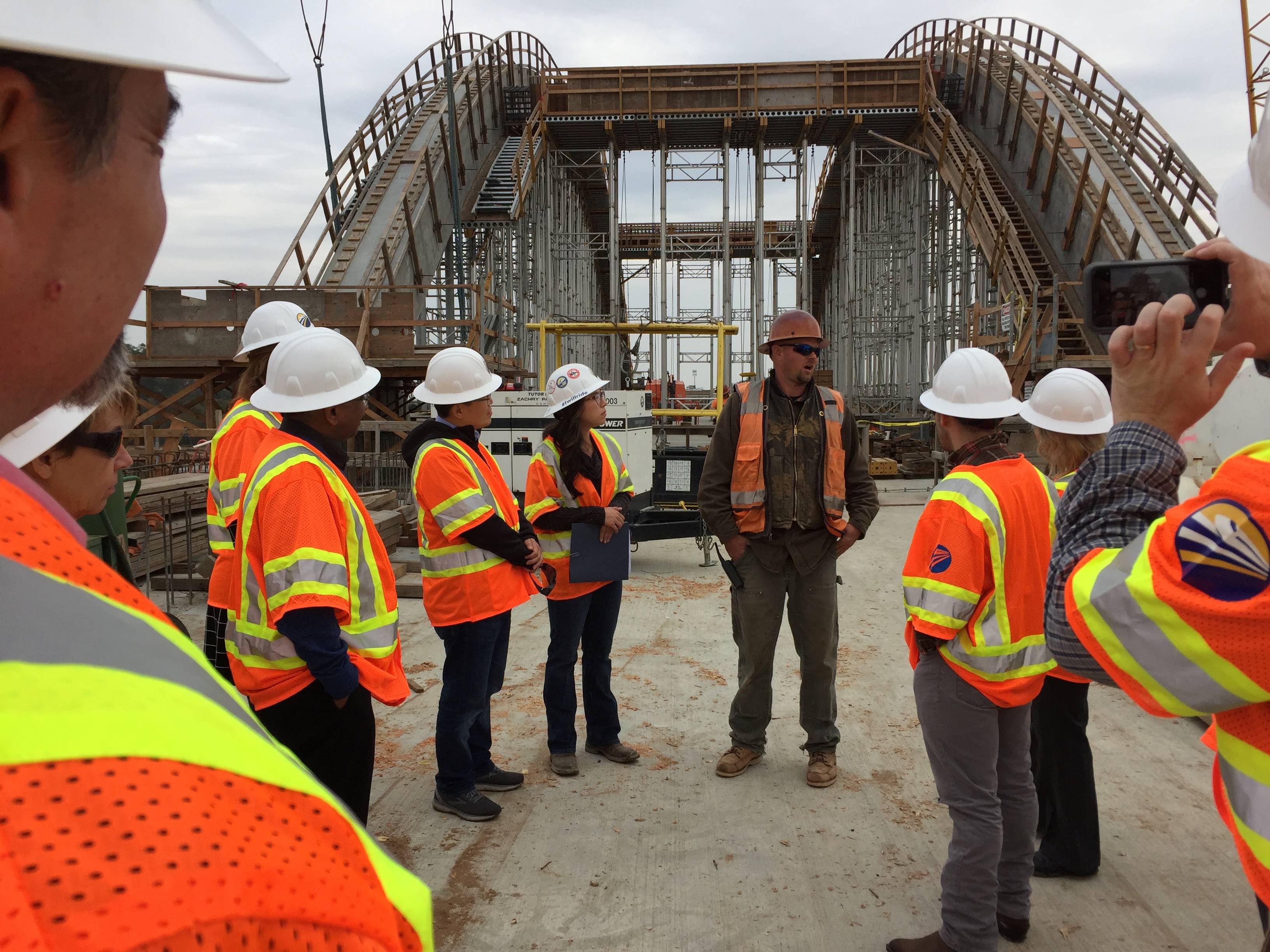
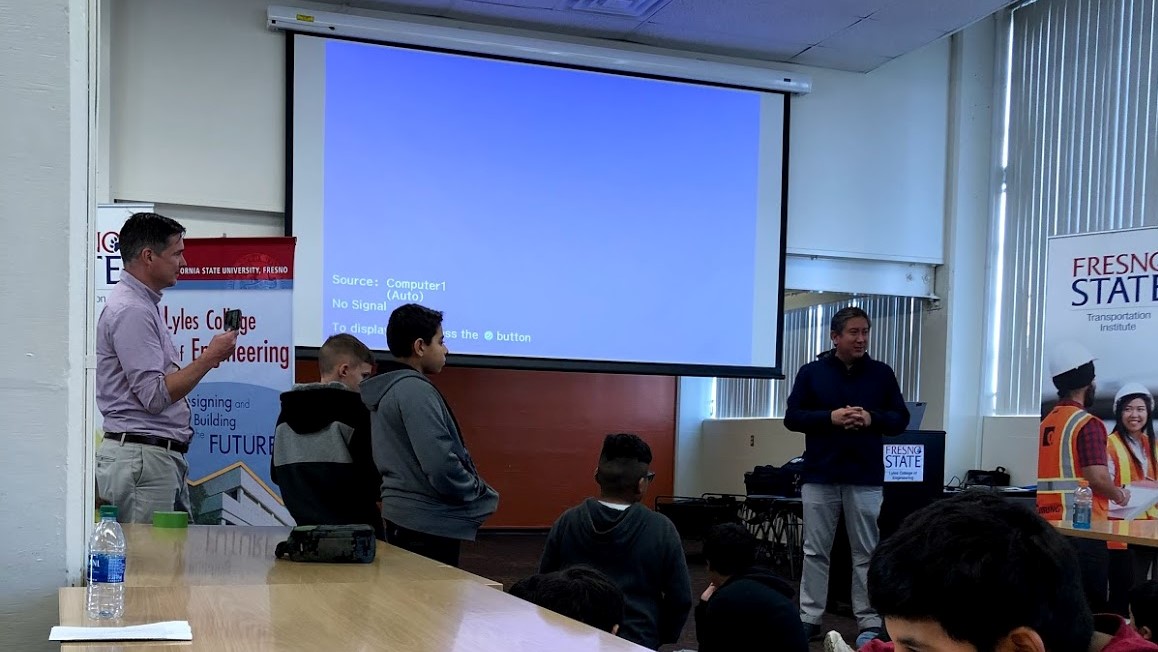
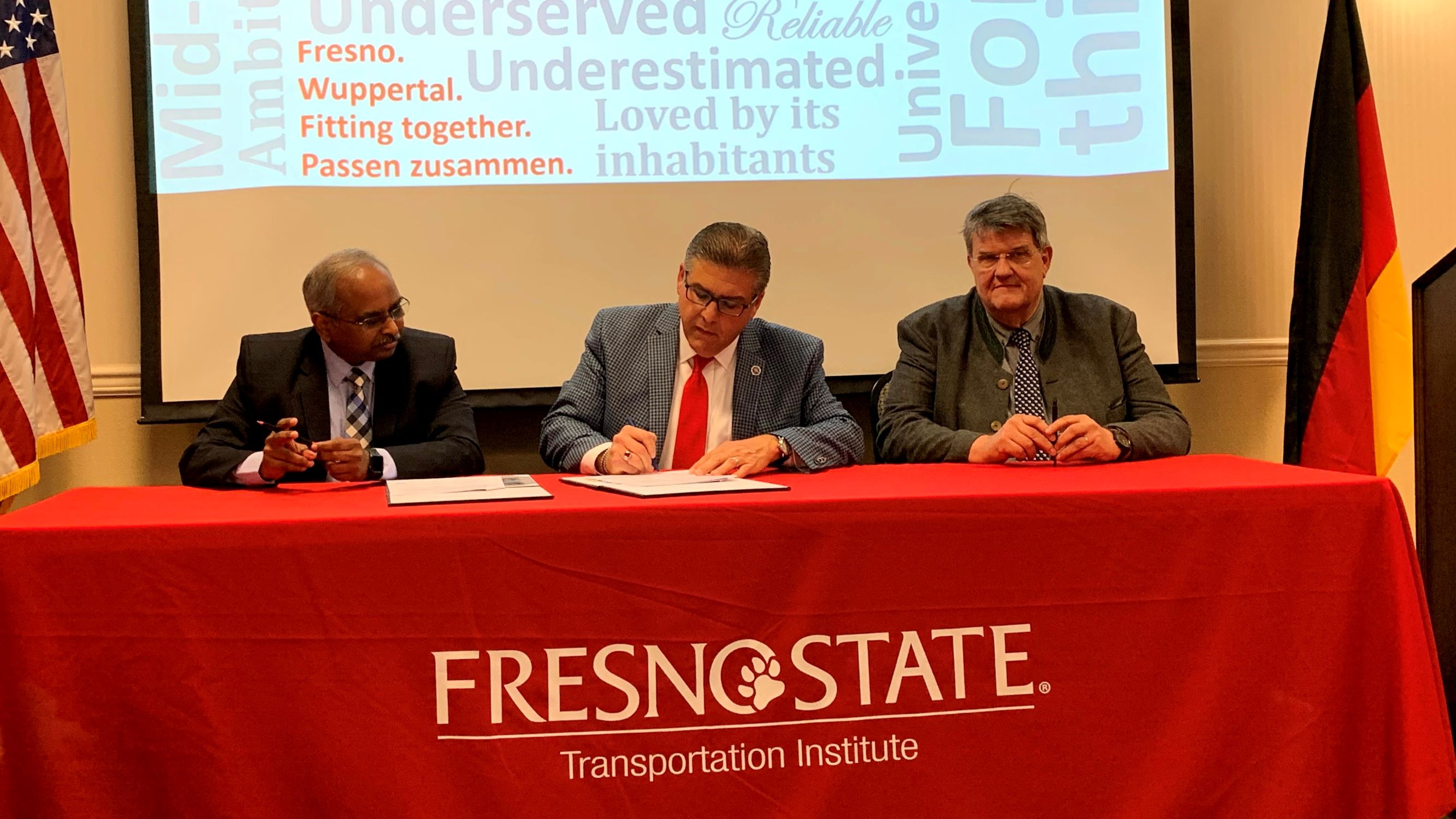
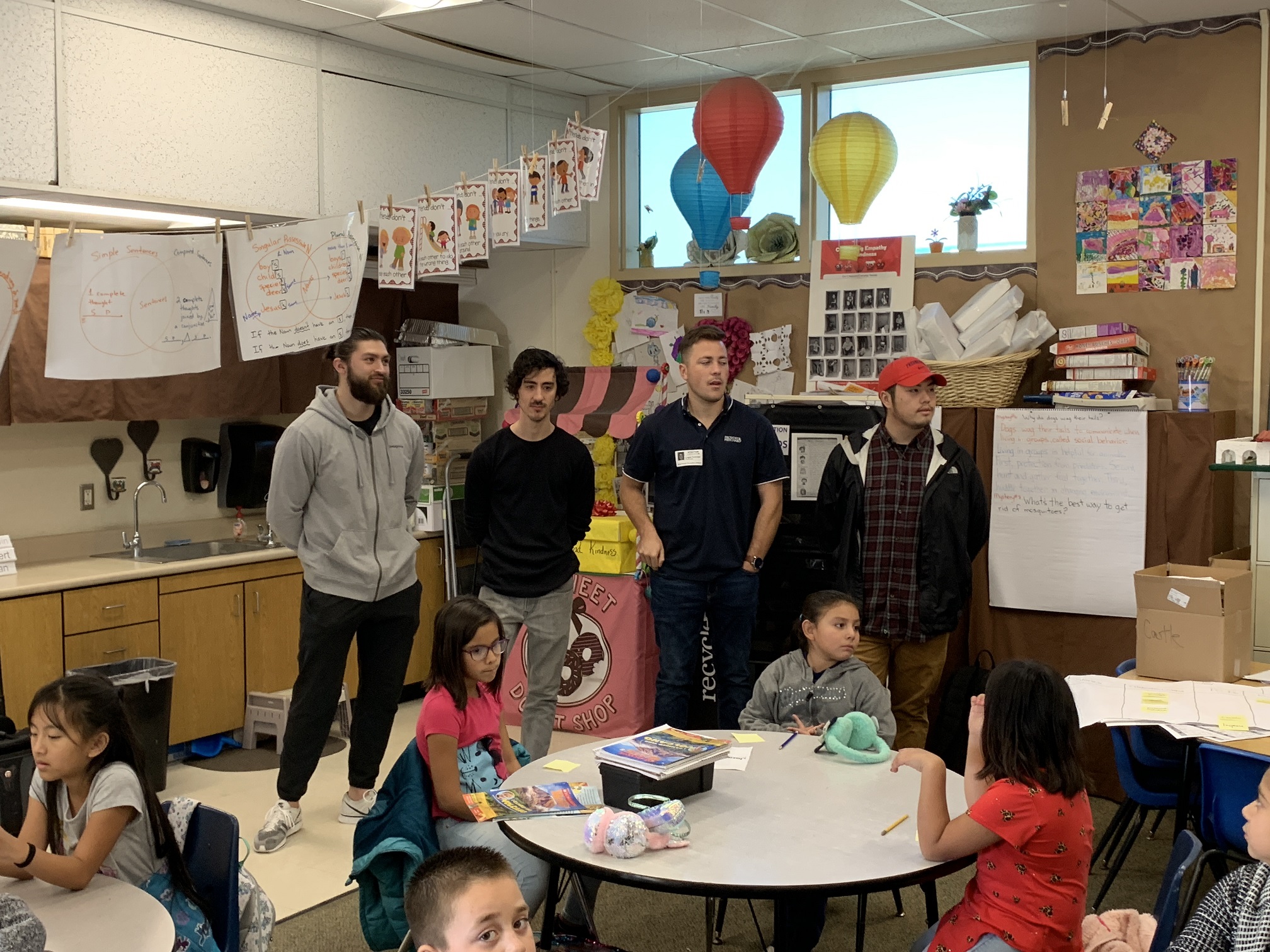
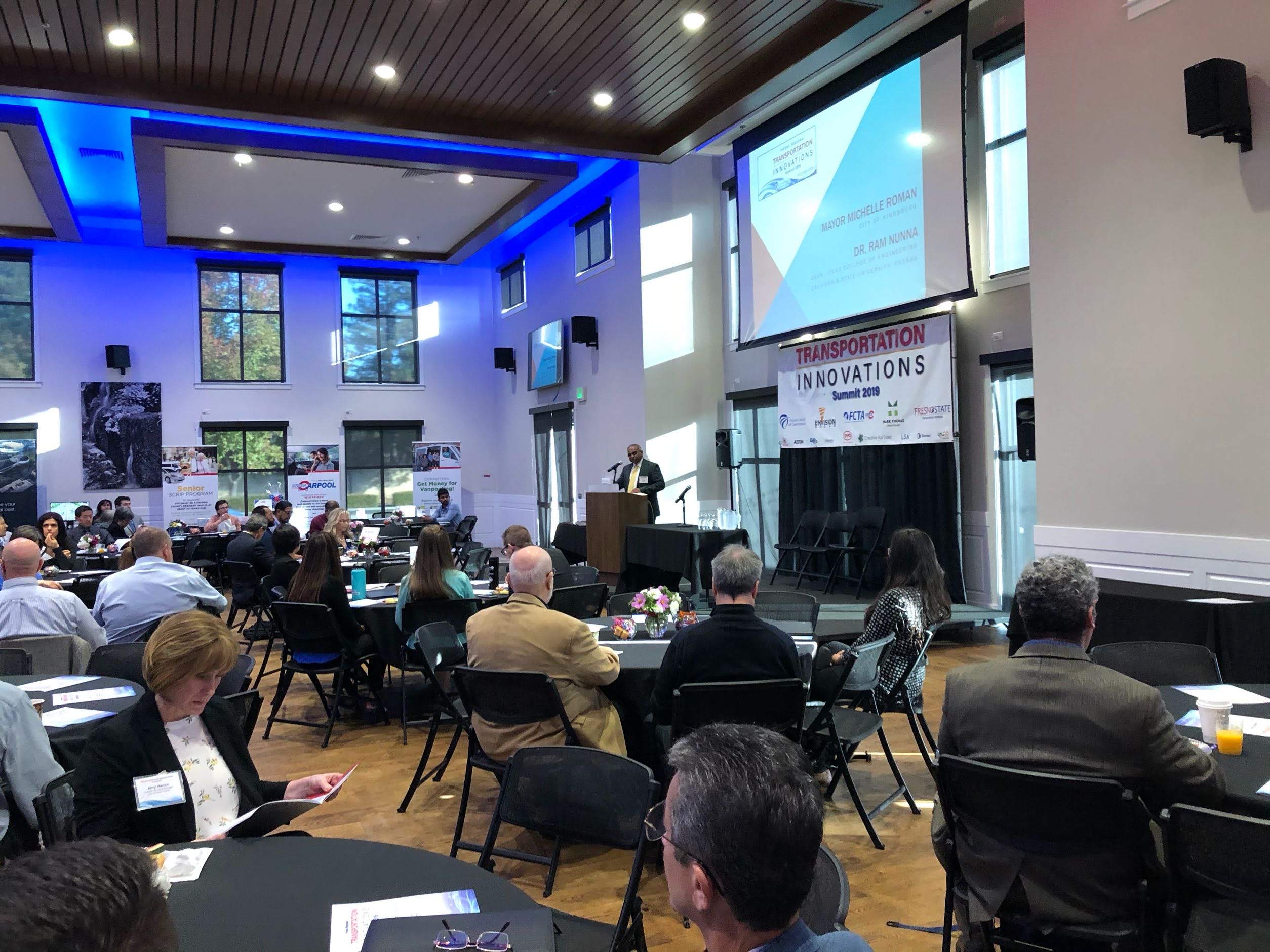
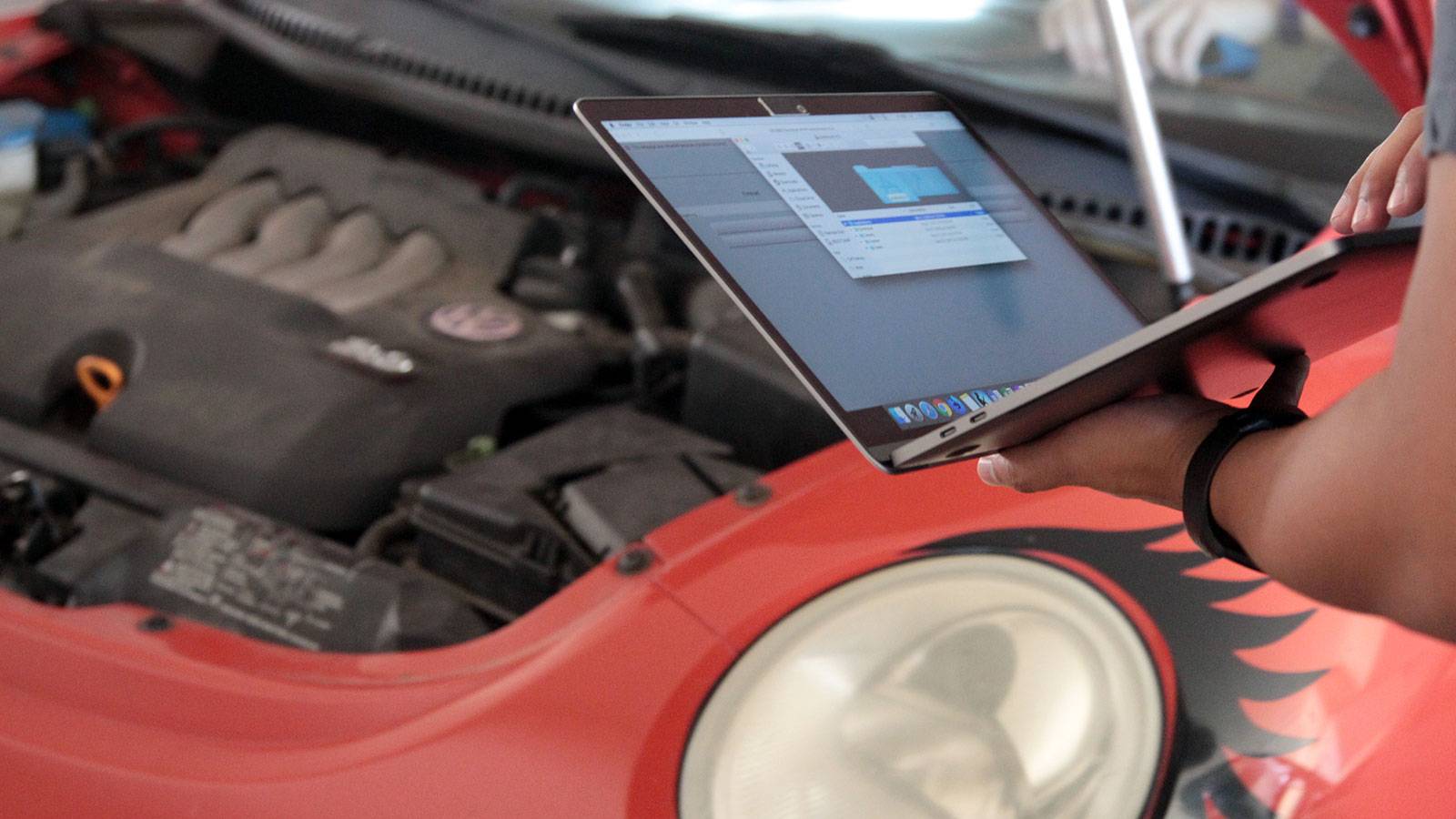
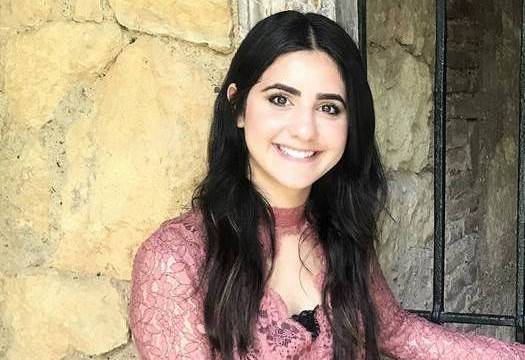

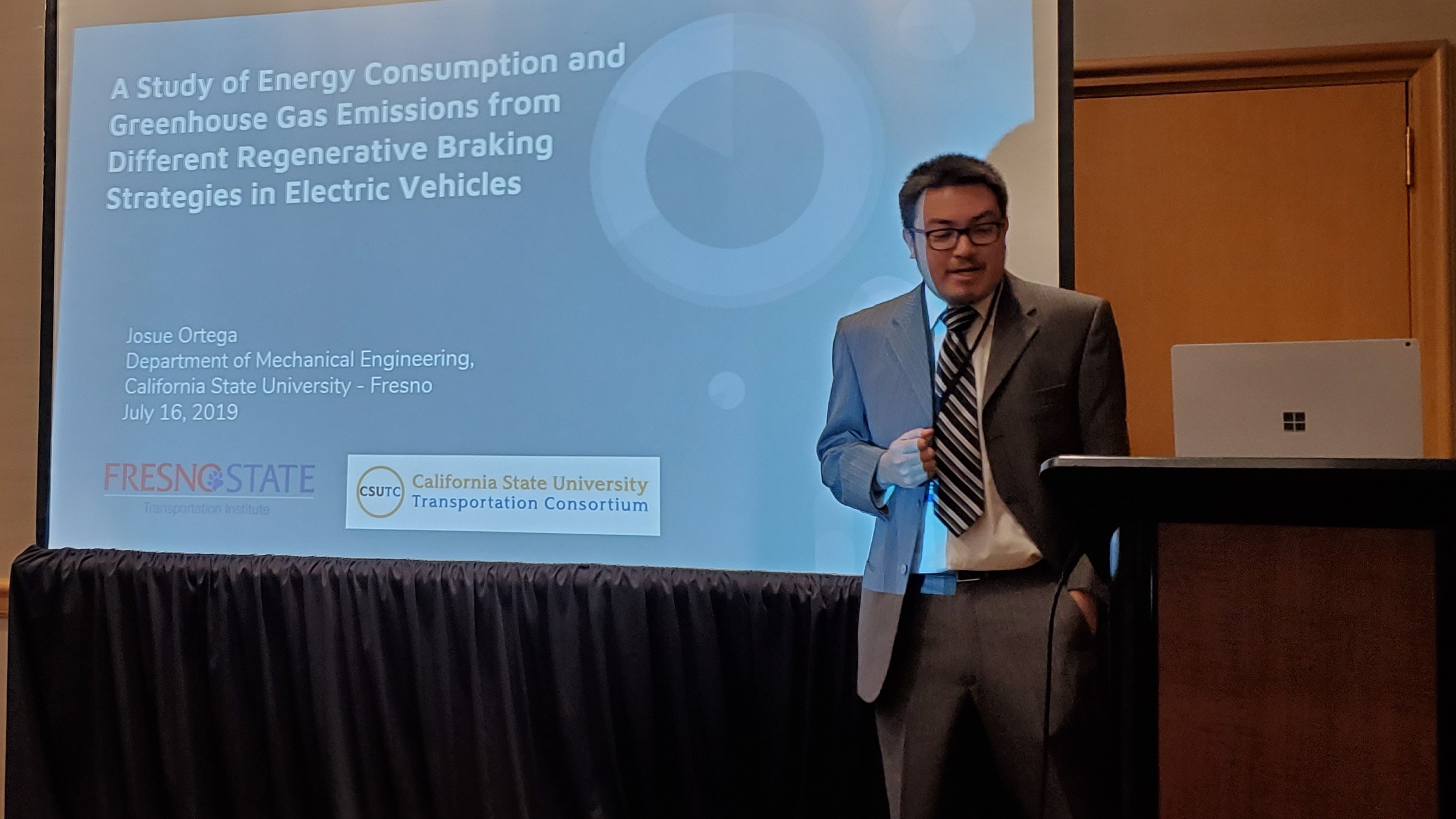
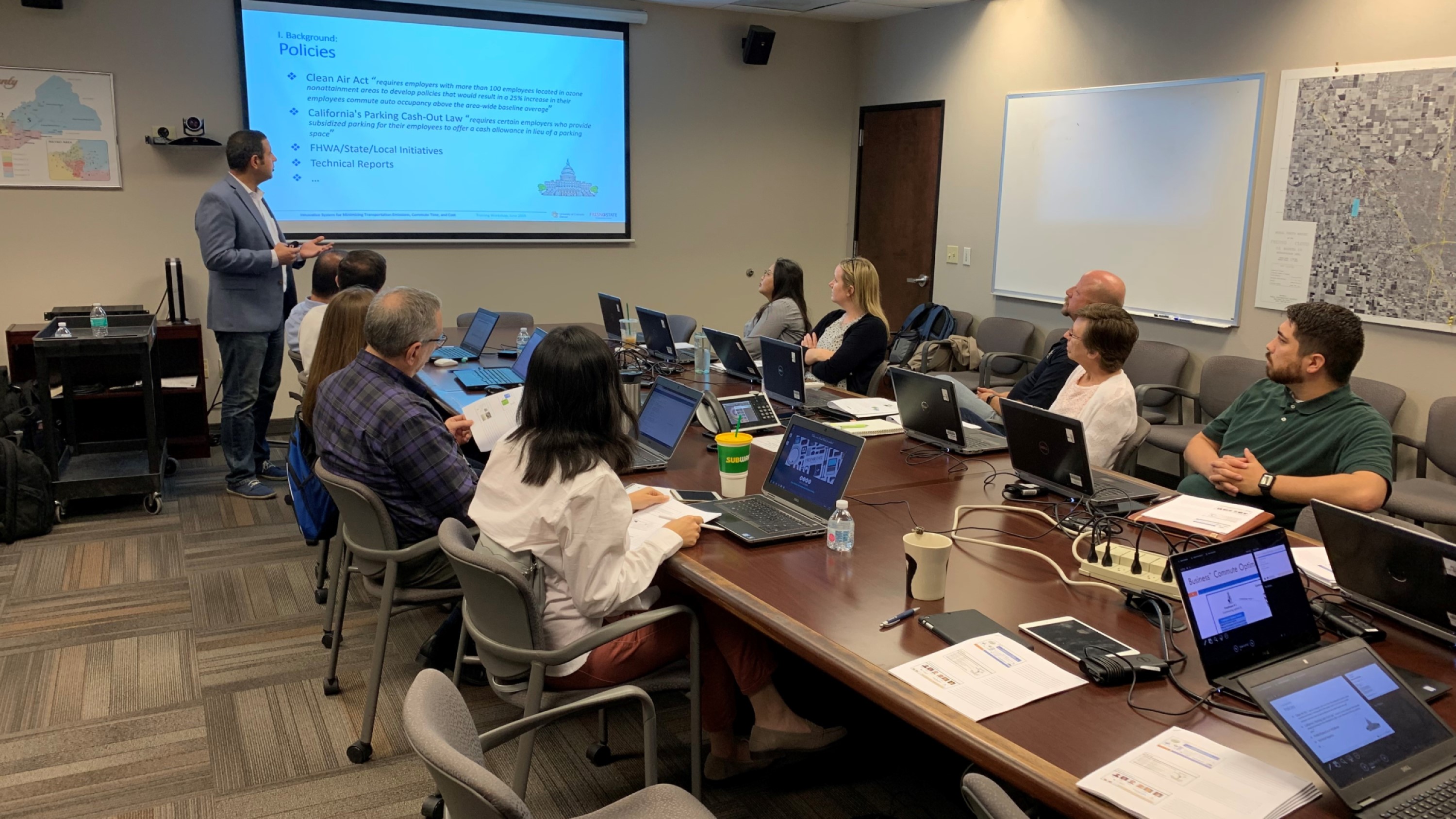
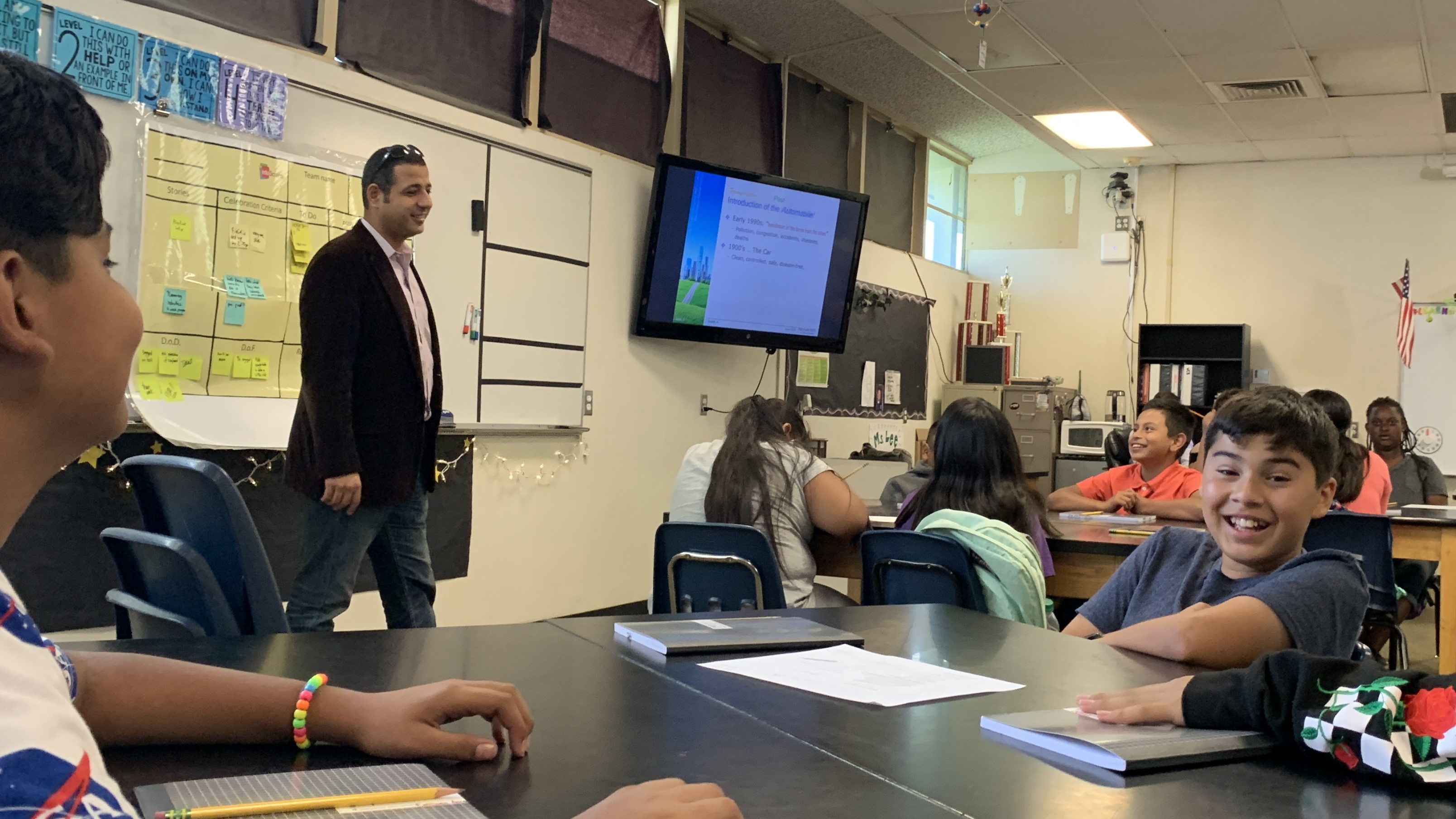
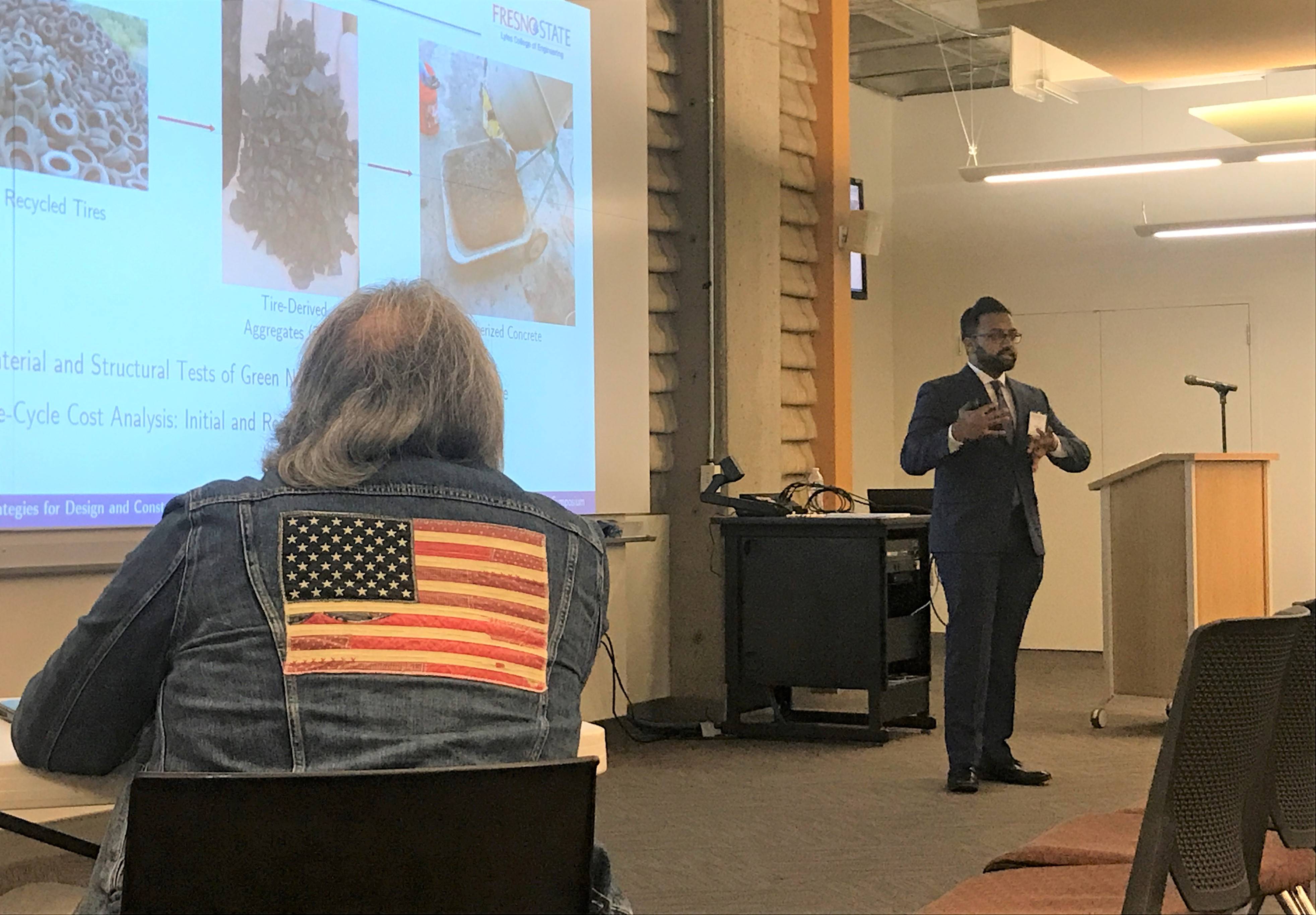
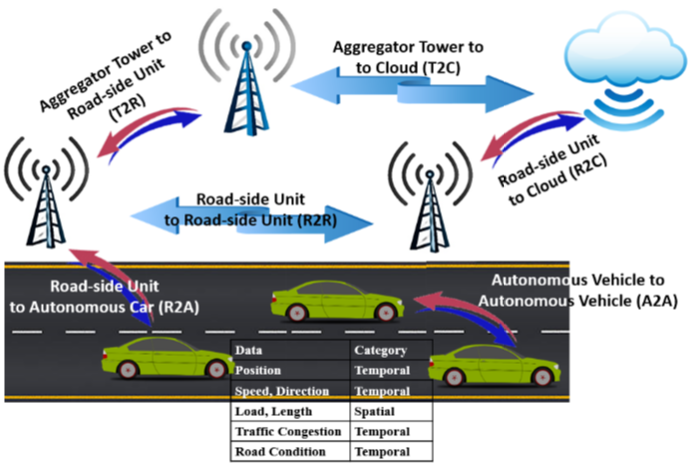

2018
